

Legal Case Study Interviews
Many commercial law firms require candidates to undertake a case study at the final interview stage.
There is not one single format, so it is advisable to ask the recruitment team what you can expect. Below are some general points and tips which have been put together from feedback from students who have gone through the process and what we have learned from law firms.
Legal Case Study and Commercial Awareness Exercises
Bear in mind that recruiters are always trying to improve their processes so it is likely that they will find new ways to assess candidates each year. It is therefore unlikely that you will find comprehensive resources to practise legal case studies in the same type of ways that you might for management consultancy case studies (in the consulting industry, case studies are extremely well established and follow a broadly similar format during the interview).
Generally speaking legal case studies are not intended to test out technical legal skills – this is partly because they need to be fair to both law and non law students. Instead they are more likely to test the skills required to be an effective lawyer within the world of (private practice) work. So focus your efforts on your specific law firm research, ways to demonstrate your motivation, and the practice of skills they are seeking rather than on preparing for specific types of exercises.
What Is Being Tested?
The following skills and attributes are likely to be tested throughout the interview process:
- commercial awareness – for example, are you thinking about the client and the issues they may be facing? Are you thinking of the law firm as a business?
- logical thinking - are you able to think in a structured way and use your common sense to arrive at a practical solution?
- analytical skills - can you identify the key issues from a lot of information, perhaps under time pressure?
- judgement - can you summarise the main points of the arguments and come to a conclusion given a certain set of facts?
- time management - can you manage your time effectively? Can you prioritise information and activity? Will you get flustered if presented with a large volume of unfamiliar information to read?
- dealing with pressure - can you work under time pressure and stay focused and effective? Can you deal with unfamiliar facts or people and stay calm?
- resilience - how do you respond to being challenged? How do you respond when something does not go your way or in the face of a difficult problem? Can you defend your point of view?
- interpersonal skills. Are you confident in what you are saying, are you collaborative, can you develop a good rapport and productive working relationships, do you listen well, are you open to feedback, do you have a positive attitude?
- communication. Can you communicate equally effectively on paper (e.g. in writing a letter/email to a client) and face to face ( e.g. in making a presentation to a group)? Are you clear? Do you think about the tone and the reader/ audience? Do you have a high standard of general literacy? Is your answer well structured, communicated in plain English and to the point?
- negotiation skills - are you clear about what you are trying to achieve and what, if anything you are prepared to negotiate on? If you are acting on behalf of someone, are they clear about what you are doing?
- motivation – are you enjoying this even if you feel slightly nervous?
Types of Exercise and Tips for Managing Them
These exercises vary from firm to firm and can be part of an individual interview or a group exercise. The material could be given to you in any of the following formats:
- a paragraph which may be about a current affairs issue or something specifically legal: read and then discuss
- an article from, for example, the Financial Times : read and discuss/answer questions
- a one or two page client scenario with a question posed at the end. For example, 'should this new client be taken on?'
- Summary of the situation – could be in the form of an email or letter
- Client or competitor strategy
- Financial statements
- Information about employees/equipment/other assets (property)
- Contracts, leases, licences
- Litigation, possible actions, non disclosure
- Regulatory information
Tips for the paragraph and article exercises
- Read carefully
- Think about how you would summarise what the article is about in two or three sentences
- Think about the argument/point of view that is being voiced throughout the article. What would be the counter argument if you had to make it?
- Identify two or three key issues – think about political and economic aspects
- There may not be an obvious connection to the law firm. The interviewer may be wanting to stretch you intellectually and see how you think, and find out whether you have an opinion that you are able to defend
- If the article has been reproduced by the firm and is set out in numbered paragraphs, this is so that you can refer to the paragraphs by number in the discussion.
Tips for the client scenarios
Possible scenarios may include a client (or a potential client) who is considering merging or acquiring another company, or a client who is being acquired by a competitor or who is looking for some legal services. The amount of material and time you are given will determine the level of detail you are expected to cover. In general it is advisable to cover as many aspects as you can broadly, rather than cover only one or two in great detail.
You may be asked a general question such as ‘what advice would you give to the client?’ or three or four specific questions. For the latter it is most important to address all the questions rather than focusing on the detail of one and ignoring others.
It is also very useful to have researched the firm carefully. By doing do you will know facts such as where the firm has offices located (useful when there are several jurisdictions involved in the scenario) and which practice areas it has (allowing you to suggest bringing in expertise from elsewhere in the firm if appropriate).
Tips for “bundle of document” exercises
Some firms will give you anything between 5 and 20 documents to read and answer one or more questions. You may be asked to give a short presentation followed by a discussion with the interviewer(s).
- Read the question(s) carefully and follow instructions
- Flick through quickly to establish the contents and make sure you look at the back page. You may even find an index to help you
- Take a minute to plan your time and leave enough to produce a presentation or at least review your thoughts before the interview
- Use a highlighter
- Identify key elements relevant to the question(s)
- Don’t forget to consider whether the deal should even be done. Is there a deal breaker? Is there another option?
- Consider risks to the client and/or to the firm. For example are there any reputational issues associated for either party? Is there any “conflict of interest” for the firm?
- Structure the presentation: beginning, middle and end which should be short summary with recommendations. Be close to the maximum time allowed
- Be confident in your recommendations, even if you feel that your chosen line of argument is marginal. You can assess the pros and cons of a given situation, but conclude with “on balance, I recommend xyz”. Remember that solicitors are paid to make decisions and that clients need to trust their legal advisers to make them!
- Consider your audience
- Imagine this was actually a real situation at work where you were involved in working with this client – what would you really say to them?
- Check your grammar, spelling and punctuation.
Preparation
Here are some suggestions to help make you feel ready and confident to tackle these exercises:
- Make sure that you research the role of a solicitor carefully such that you have a realistic view of their daily work (in the relevant setting), their responsilbilites and activities and even an awareness of the SRA's Code of Conduct for legal service firms and individuals.
- Have a clear idea of the firm’s practice areas, what type of work they specialise in, where their offices are located, how they differentiate themselves from their key competitors and the challenges that law firms face.
- Read the firm’s annual report or review (and compare it to a competitor), follow their news on Twitter in the weeks ahead of the interview.
- Be aware of what is happening in the legal world.
- Keep up to date with current affairs including areas of business that interest you.
- Learn some basic business language, have a broad understanding of mergers and acquisitions and how they are structured. Know how to read a balance sheet.
- Be clear on the importance of technology for all businesses.
- Practise reading business articles in a set time and then summarise the key points.
- You may find it useful to become familiar with some basic analysis tools used in business such as SWOT and PESTLE as they may help you think of areas to consider in some responses. Don't go overboard with these though as they might hinder your ability to write a clear and appropriate response if they are used incorrectly.
- Complete some of the exercises that firms offer in their online work experience/online internship schemes. Many are listed on Forage.
Resources for Building Commercial Awareness
Good resources for City and global firms are:
All You Need To Know About The City by Chris Stoakes, and Commercial Law Handbook by Jake Schogger are useful preparation for understanding business terms, how deals work and general commercial awareness as it applies to the legal industry.
Useful websites include:
- My experience on case study interview: How should you prepare for a case-study interview? - a Legal Case Study on LawCareers.Net
- Chambers Student: Commercial Awareness Resources - Legal Blogs
- Chambers Student: Legal industry trends
- LawCareers.Net commercial awareness weekly round ups
- UK Government guidance on how to set up a business
- BBC News: Business
- How to Read a Balance Sheet (The Non-Boring Version)
- Linklaters “Commercial Awareness” advice
- Virtual work experience programmes for several law firms including Linklaters, White & Case and Pinsent Masons are available on the Forage platform.
- Warwick Place: news articles about challenges faced by law firms
- legalfutures.co.uk – has a free newsletter rounding up key changes and news in the legal sector.
- Our self directed learning information pages contain resources for free online courses
- Investopedia has a good dictionary for business terms.
Building Your Commercial Awareness Skills at Oxford
- Attend skills sessions run by law firms online as well as those run by The Careers Service , the Oxford Law Society , the Oxford Bar Society and the Law Faculty
- The Oxford Strategy Challenge – ideal for building up team work, commercial awareness and skills in working with business clients. Run regularly throughout the year (online).
- Insight into Strategy and Management – a short course, run each term, to improve your business knowledge.
- Develop your employability skills – includes many ideas for building these at Oxford including practical suggestions for developing your “business awareness”.
- Presentation and other assessment centre skills advice
- CareerConnect VACANCIES
- CareerConnect EVENTS
- RELATED NEWS
Looking for more?
Check the CareerConnect platform for all our upcoming events and opportunities, book appointments, find jobs and internships, and more.
Login to CareerConnect
Recommended links
Oxford Guide to Careers 202 4
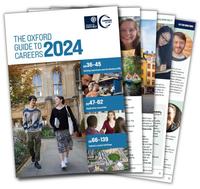
Cover Letters
Sectors & Occupations
See a Careers Adviser
Connect with us
- Follow us on LinkedIn
- Follow us on 𝕏 X (Twitter)
- Follow us on Instagram
- Follow us on YouTube
- Follow us on Facebook
- Platform Overview All-in-one legal research and workflow software
- Legal Research Unmetered access to primary and secondary sources
- Workflow Tools AI-powered tools for smarter workflows
- News & Analysis Paywall-free premium Bloomberg news and coverage
- Practical Guidance Ready-to-use guidance for any legal task
- Contract Solutions New: Streamlined contract workflow platform
- Introducing Contract Solutions Experience contract simplicity
- Watch product demo
- Law Firms Find everything you need to serve your clients
- In-House Counsel Expand expertise, reduce cost, and save time
- Government Get unlimited access to state and federal coverage
- Law Schools Succeed in school and prepare for practice
- Customer Cost Savings and Benefits See why GCs and CLOs choose Bloomberg Law
- Getting Started Experience one platform, one price, and continuous innovation
- Our Initiatives Empower the next generation of lawyers
- Careers Explore alternative law careers and join our team
- Press Releases See our latest news and product updates
- DEI Framework Raising the bar for law firms
- Request Pricing
The Right Answers to Law Interview Questions
February 18, 2021
[Learn more about how Bloomberg Law can help law students excel in class and jump-start their careers .]
If you want to make it as a lawyer, you have to be good under pressure, and often the first true test of that (after first semester exams, of course) is your legal job interview. Whether you’re applying for a summer associateship at a law firm or an in-house position at a company, one of the most critical – and stressful – steps is the interview. It can be your one opportunity to make an impression and showcase what makes you the right candidate for the job.
Like most things, preparation is key. Here, practicing attorneys and legal advisers share their best tips for how to answer some of the most common and challenging questions that are sure to come up in your law interview.
[Bloomberg Law combines the legal content and tools you need to prepare for your classes now as a law student, and the advanced features and business intelligence you need as you start your career. Register for your Bloomberg Law Academic Account .]
Why do you want to work here?
A law firm has an opening for an associate position. You want to be a law associate. The answer seems obvious, right? It might feel like a softball question, but your answer to “why do you want to work here” could make or break your interview right from the start. Current attorneys advise candidates to make it personal.
Moy Ogilvie, Hartford office managing partner, McCarter & English, LLP
Jennifer Leonard, chief innovation officer and executive director of the Future of the Profession Initiative at the University of Pennsylvania’s Carey Law School
What’s your greatest weakness?
A common answer to the ‘what is your greatest weakness’ question is to give an answer that’s not a weakness at all. The reason applicants give answers like this is simple: they’re afraid to reveal a real weakness, and somehow think they can snow interviewers with a fake answer. Guess what? Interviewers aren’t fooled.
So what’s a better answer to this feared question than the hackneyed and disingenuous ‘I’m a workaholic’ response?
Shauna C. Bryce, who practiced law and served on a law firm hiring committee before starting Bryce Legal Career Counsel
[Log in to Bloomberg Law to read the full article: Ask The Hiring Attorney: How do I answer interview questions about my weaknesses? ]
What makes you stand out?
Perhaps you’re not in the top 10% of your class – or perhaps you are, but hey, so is that guy. Both in-house and law firm interviewers are looking for candidates with strong academics, but it doesn’t end there. Setting yourself apart from the rest means showcasing your personality and interests while being respectful and thoughtful.
Esther E. Cho, shareholder and chair of executive committee, Keesal, Young & Logan
Claudia Chafloque-Siu, associate at Eversheds Sutherland
What relevant experience do you have?
Many law students don’t have a lot – or any – legal experience when they’re applying for a summer associate position, but that’s okay. There are still ways to impress your interviewers by highlighting specific skills, past professional experience, or knowledge of the industry.
Connie Brenton, chief of staff and senior director of legal operations, NetApp, Inc.
While preparing for the interview, you should think of three to five illustrative stories that show your character, strengths, and applicability of your earlier work history. Did you learn the importance of customer service? Great! In the interview, have a story ready to demonstrate how you understand the importance of good client service as well as how you maintain productive relationships with clients and others.
[Log in to Bloomberg Law to read the full article: Ask the Hiring Attorney: How can I sound qualified for a practice area when I don’t have any experience? ]
Networking Outside of the Interview
Whether it’s before or after you’ve landed an interview, networking is key to learning about opportunities and making sure you’re top of mind.
Robert Brown, former practicing attorney and currently a legal analyst for Bloomberg Law focusing on legal markets and legal technology
Recommended for you
See bloomberg law in action.
From live events to in-depth reports, discover singular thought leadership from Bloomberg Law. Our network of expert analysts is always on the case – so you can make yours. Request a demo to see it for yourself.
Jurisdictions
A list of all countries, regions and trading blocs covered by Legal 500 rankings and research list of all countries and trading blocs covered by Legal 500
Green Guide
Exploring the legal sector’s engagement with a green transition
Future Lawyers
The student’s guide to the UK legal profession
Deutschland DE
Auflistung und Ranking von ca. 400 Anwaltskanzleien verschiedener Praxisbereiche in Deutschland
Plus de 300 cabinets d’avocats opérant en France
Global directory of profiled law firms
Barristers’ Sets
Directory of profiled sets
Law Firm Networks
International law firm network index
Service Providers
Suppliers offering support services to legal professionals
Firms in the Spotlight
Featured law firms in specific practice areas and jurisdictions
Firms to Watch
Firms To Watch recognises emerging practices, specialist boutiques and ground-breaking firms that may not otherwise be ranked in Legal 500.
Meet the Team
Meet the team provides extra insight into a specific team’s capabilities and expertise above and beyond what is included within Legal 500 rankings.
Hall of Fame
Law firm partners with long-term experience at the top of the profession
Interview with…
Explore firms’ practices, capabilities, values and cultures through expert interviews with partners
Enterprise GC
An elite, exclusive residential conference bringing together market-leading general counsels
GC Magazine
Leading content for general counsel
GC Powerlist
Recognising VIP general counsel for their innovation, impact and market-leading standing within major global economies
In-House Lawyer
The magazine of choice of the in-house counsel of the UK and EMEA
Comparative Guides
Knowledge centre.
Examining legal perspectives on specific topics across different countries
News & Developments
Latest news and thought leadership from law firms around the world
Special Reports
In-depth reports on legal trends and insights from global law experts.
Legal Business
The market-leading monthly magazine for legal professionals at elite law firms globally
Upcoming Events
Legal 500’s extensive, market-leading programme of summits, awards, powerlist receptions, roundtables delivering cutting-edge discussion and debate globally
Previous Events
Highlights, thought leadership and insights from past legal events and webinars
Corporate Conversations
Insightful discussions with industry leaders on pivotal legal topics
Legal 500 TV
Find out more about the team behind the world’s most successful and highly respected legal market research organisation
Answers to Legal 500’s most frequently asked questions
Submissions
Comprehensive guidance on how to showcase your firm’s capabilities to the world’s most highly respected legal market research team
Bespoke practice area or jurisdictional reporting
Marketing Resources
Display your Legal 500 Ranking on your website
Contact Legal 500 for more information on submissions, commercial and marketing opportunities or more details of our portfolio of research products
Newsletters
Sign up for more information on our portfolio of research products
Rankings open close
Firms open close, lawyers open close, in-house open close, knowledge centre open close, events open close, about us open close.
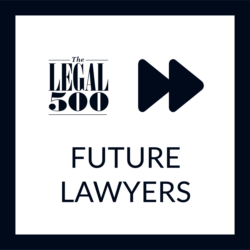
10 top tips on how to prepare for a law firm interview
- Survey Results
- Firm Profiles
- Firm Comparison Table
- How our survey works
- Career Clinic
- Bar Profiles
The interview: arguably the most daunting part of the whole application process and the one that will make or break your journey with that particular law firm. But with plenty of preparation you can go into your interview feeling confident and knowing that you’re about to give your best performance.
1) Know the firm
Perhaps the most fatal mistake made by under-prepared interviewees is not being able to distinguish a firm from its competitors. The high likelihood of a question along the lines of “Why this firm?” being asked gives applicants the perfect opportunity to impress the interviewer with their knowledge and understanding of the firm’s strategy, identity and strengths.
2) Know yourself
An interviewer cannot be expected to believe your reasons for wanting to be a commercial solicitor if you are not sure of them yourself. Employers look for commitment, and confidently explaining the reasons behind your career choice is the best way to demonstrate it. On a more personal level, be familiar with your personality and understand which aspects of it – and your life in general – make you interesting, and allow them to shine through at the interview.
3) Know your application
There is one element of the interview for which you can be perfectly prepared: questions based on your application form. Go over it beforehand and ensure that your preparation for the interview reflects the themes and answers you have included. Taking a copy of your application to the interview can be a useful strategy, but only if you are already familiar with the content.
4) Prepare for competency questions
Questions may focus on a specific set of facts, and having a large bank of examples tailored to the competencies most relevant to the legal world will allow you to give strong answers. Think about what the interviewer is looking for with each question and check that your examples demonstrate key skills. Try to stress positives in those examples which initially appear negative – for example, what you learnt from a time when you did not succeed.
5) Commercial awareness
This is a less elusive concept that it may seem. Staying up to date with current affairs and having knowledge of the legal market is essential. Being comfortable discussing economic policy, finance and related areas may be required for some firms – it is best to ask around. If faced with a challenging case study, remember to think commercially before legally and answer using common sense and general principles of business.
6) Keep note of what you do during your time at the firm
If you are to participate in an exit interview at the end of a vacation scheme you may be asked to describe which aspects of the scheme and which tasks you found most enjoyable, which tasks you found difficult, and how you responded to any challenges that you faced.
7) Take your time and be clear in your answers
Use your interview to show your clarity of mind and strong communication skills. Instead of rushing to answer questions take a brief moment to gather and organise your thoughts. When faced with a tough question it is better to explain to your interviewer that you need to take slightly longer to think, or admit that you do not know the answer, than panicking and giving a rushed or rambling answer.
8) Don’t be a clone
Your interviewer is looking for someone who will contribute positively to the office dynamic and who can, in the future, be put in front of clients. In addition to showing evidence of interests outside of law, being confident, personable, and maintaining eye contact will help to distinguish you from other applicants with equally strong CVs. If you have properly prepared for an interview you should have nothing to worry about.
9) Asking questions isn’t compulsory
Intelligent questions will be well received but if your interview is at the end of a vacation scheme it is understandable if you have none left to ask. It is best to avoid asking any questions to which the answers can be found on the home page of the firm’s graduate website.
10) An interview is a two-way process
To judge the atmosphere of a firm solely on an interview is unadvisable, but its tone and content are often useful pieces of a larger puzzle and will help you decide whether this is the firm for you.
Mastering the Law Firm Interview: Tips and Strategies for Success
Share this article
Print/Download PDF
By Angelie Ala
Rate this article
38 Reviews Average: 4.2 out of 5

1. Research the Law Firm
- Start browsing the firm's website to learn about its practice areas, size, locations, and notable clients. Pay attention to their mission statement and any news or press releases, as these can give you valuable insight into the firm's culture and recent accomplishments. Remember to check their blog or publications section, as these can provide additional information about their legal expertise and interests.
- If possible, find out who will conduct your interview and look up their professional background on LinkedIn or the firm's website. Understanding their specialties, interests, and career paths can help you connect personally and leave a lasting impression. Knowing their accomplishments or recent publications can also be an excellent conversation starter.
- Check the firm's social media accounts to understand its values, culture, and current events. This information can be helpful when answering questions about why you want to work there or what makes the firm unique. Social media can also offer insights into the firm's community involvement or pro bono work, showcasing its commitment to social responsibility.
2. Prepare Your Answers to Common Interview Questions
- Expect questions that explore your past experiences and how you've handled certain situations, such as teamwork, problem-solving, and conflict resolution. Be prepared with specific examples and use the STAR (Situation, Task, Action, Result) method to structure your response. Highlight your ability to work under pressure, manage deadlines, and communicate effectively with colleagues and clients.
- Demonstrate your legal expertise by preparing answers to questions about current legal trends, recent cases, or any laws relevant to the firm's practice areas. Stay up-to-date with legal news, read relevant journals, and attend industry events to impress your interviewers with your industry knowledge.
- Interviewers may ask about your career goals, work style, and reasons for choosing the firm. Be genuine and align your answers with the firm's values and culture. Share your passion for the law and explain how the firm's practice areas or culture align with your long-term goals.
- You may be asked to analyze a hypothetical legal scenario during your interview. Approach these questions with a systematic and logical thought process, demonstrating your analytical skills and legal knowledge. Be sure to ask clarifying questions and think out loud to showcase your thought process.
3. Dress to Impress
- Opt for a well-tailored suit in a neutral color, such as black, navy, or gray. Pair it with a white or light-colored dress shirt, a conservative tie, and polished dress shoes. Women should opt for a suit with a skirt or pants, a blouse, and closed-toe heels or flats.
- Ensure your hair is clean, neat, and styled professionally. Keep makeup and jewelry minimal, and avoid strong fragrances. Trim and clean your nails, and consider removing any visible piercings to maintain a conservative appearance.
4. Master Your Body Language
- Sit up straight and lean slightly forward to show engagement and interest. Avoid crossing your arms or slouching, which can signal defensiveness or disinterest.
- Maintain appropriate eye contact throughout the interview to demonstrate confidence and attentiveness. However, don't stare; remember to blink and look away occasionally to avoid making the interviewer uncomfortable.
- Use natural hand gestures to emphasize points but avoid fidgeting or touching your face. Keep your hands visible and relaxed on the table or in your lap.
- Smile genuinely and show enthusiasm for the position and the firm. Keep your expressions positive and engaged throughout the conversation. Nod occasionally indicates you're actively listening and understanding the interviewer's points.
5. Ask Thoughtful Questions
- Ask about the firm's core values, mentorship programs, or diversity initiatives to show your commitment to personal and professional growth within the organization. You may also ask about work-life balance or how the firm fosters a collaborative environment.
- If you are interested in a particular practice area, ask about the firm's approach to that area, its clients, or any recent cases. This will showcase your genuine enthusiasm and legal knowledge. Inquire about opportunities for professional development within that practice area, such as training or mentoring programs.
- Inquire about the firm's strategic vision or growth plans to demonstrate your interest in being a part of its long-term success. This can include questions about expanding practice areas, opening new offices, or exploring innovative legal services.
6. Navigate Tough Questions with Confidence
- If you need a moment to think about your answer, pausing briefly is okay. It's better to provide a well-thought-out response than to rush into an answer you might regret.
- If you don't know the answer to a question or lack experience in a specific area, be honest about it. Explain how you would approach learning the necessary information or skills, showcasing your adaptability and commitment to growth.
- If asked about a negative experience or failure, frame your answer to highlight what you learned from the situation and how it has made you a better professional. Emphasize your resilience and ability to learn from setbacks.
7. Follow Up with a Thank You Note
- Send your thank you note within 24 hours of the interview to show promptness and professionalism. Email is typically the most efficient and acceptable method, but a handwritten note can make a memorable impression if you have a strong rapport with the interviewer.
- Personalize each note by mentioning specific topics you discussed with the interviewer or any unique connections you made. This will help the interviewer remember you and reinforce your genuine interest in the firm. If multiple people interviewed you, send individual notes to each person, addressing specific topics discussed with them.
- Use the thank you note to briefly restate your enthusiasm for the position and your confidence in contributing to the firm's success. Highlight any unique skills or experiences that make you a strong fit for the firm.
- If you feel there was a weak point in your interview or a question that you could have answered better, use the thank you note as an opportunity to address it. Provide a concise explanation or clarification to show your proactive approach and commitment to the position.
Want to continue reading?
Become a free bcg attorney search subscriber..
Once you become a subscriber you will have unlimited access to all of BCG’s articles.
There is absolutely no cost!
Article Categories
- Legal Recruiter ➝
- Harrison's Perspectives ➝
- Legal Job Search & Interview Tips
Find Similar Articles:
- Interview Tips
- Law Firm Interview
Active Interview Jobs
Featured jobs.
Location: North Carolina - Raleigh
Location: New York - New York City
Most Viewed Jobs
Location: Massachusetts - Westford
Location: Florida - Miami
Location: California - Los Angeles
Upload Your Resume
Upload your resume to receive matching jobs at top law firms in your inbox.
Additional Resources
- Harrison's Perspectives
- Specific Practice Areas
- The Winning Mindset
BCG Reviews
It worked out and I'm pleased with everything. My recruiter did a good job helping walk me through how to do the resume.
Chris Sayers
University of Texas School of Law, Class Of 2007
I think my favorite thing was just how proactive she was. She was sending my resume out to firms that she had connection.... Read more >
Aaron Hughes
California Western School of Law, Class Of 2017
Everyone was so prompt in their communication with me, everyone kept up with me and made sure to notify me if there was .... Read more >
Rainet Spence
Maurice A. Deane School of Law at Hofsra, Class Of 2020
[BCG] essentially handled everything, so it was really low stress on my end.I don't think I would have been able to find.... Read more >
Anna Zielinski
University of Wisconsin Law School, Class Of 2015
Sarah is just a great spirited person and very energetic and lots of great ideas. She kept everything going and on the b.... Read more >
Lynn Consentino
Yale Law School, Class Of 1995
My recruiter recently worked with me when I decided to change firms, and was a terrific resource throughout the whole pr.... Read more >
Alexandra Hoffman
University of San Francisco School of Law, Class Of 2013
Popular Articles by Harrison Barnes
- What is Bar Reciprocity and Which States Allow You to Waive Into the Bar?
- What Do Law Firm Titles Mean: Of Counsel, Non-Equity Partner, Equity Partner Explained
- Top 6 Things Attorneys and Law Students Need to Remove from Their Resumes ASAP
- Why Going In-house Is Often the Worst Decision a Good Attorney Can Ever Make
- Top 9 Ways For Any Attorney To Generate a Huge Book of Business
Helpful Links
- The BCG Attorney Search Guide to Basic Law Firm Economics and the Billable Hour: What Every Attorney Needs to Understand to Get Ahead
- Quick Reference Guide to Practice Areas
- Refer BCG Attorney Search to a Friend
- BCG Attorney Search Core Values
- Recent BCG Attorney Search Placements
- What Makes a World Class Legal Recruiter
- What Makes BCG Attorney Search The Greatest Recruiting Firm in the World
- Top 10 Characteristics of Superstar Associates Who Make Partner
- Off-the-Record Interview Tips From Law Firm Interviewers
- Relocating Overseas
- Writing Samples: Top-12 Frequently Asked Questions
- The 'Dark Side' of Going In-house
- "Waive" Goodbye To Taking Another Bar Exam: Typical Requirements and Tips to Effectively Manage the Waive-in Process
- Changing Your Practice Area
- Moving Your Career to Another City
- A Comprehensive Guide to Working with a Legal Recruiter
- A Comprehensive Guide to Bar Reciprocity: What States Have Reciprocity for Lawyers and Allow You to Waive into The Bar
Related Articles

10 Essential Tips for Acing Your Attorney Job Interview
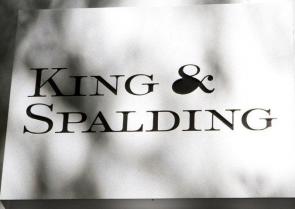
Acing the Interview: Essential Tips for Getting Hired at Kin ....
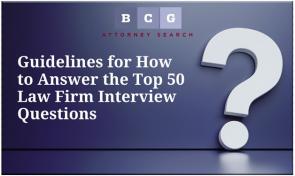
Guidelines for How to Answer the Top 50 Law Firm Interview Q ....
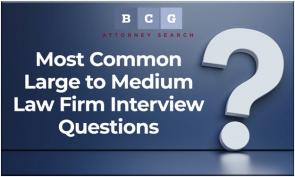
Most Common Large to Medium Law Firm Interview Questions
When you use BCG Attorney Search you will get an unfair advantage because you will use the best legal placement company in the world for finding permanent law firm positions.
Don't miss out!
Submit Your Resume for Review
Register for Unlimited Access to BCG
Sign-up to receive the latest articles and alerts
Already a subscriber? Sign in here.

- Internships
- Career Advice
Strategies for Answering 5 Common Law Firm Interview Questions
Published: Mar 11, 2019

Summer associate interview season may be months away, but it's never too early to start preparing. As you research which firms to bid on in the coming months, you also should start getting ready for the actual interviews. With a full schedule of on-campus interviews and call-backs with multiple attorneys at each firm, the summer associate interview process can feel like a barrage of questions. Even conversational interviewers may ask you a few seemingly simple questions to start things off. Whether you are a pro at thinking on your feet or naturally introverted, practicing your answers to questions ahead of time will be enormously helpful. Below are five questions you will likely encounter as you interview for a summer associate spot, as well as advice on how to prepare for and respond to them.
1. Why did you decide to go to law school/become a lawyer?
Most law students can think of a canned response on why they pursued law school, but your goal in answering this question is to be memorable and genuine. Take some time to think about why you’ve gone down this path and how you can tie that goal to summering at this firm. Your answer should demonstrate purpose and tell the interviewer something about you as an individual. Perhaps some circumstance in your life sparked an interest in the law, or your undergraduate studies ignited your passion—explain these reasons with details unique to your experience. Like a good resume, your answer to this question should tell a story rather than sound like a rote response. Answers to avoid include, “Because I’m good at arguing,” and “It pays great.”
2. What are you hoping to get out of the summer program?
A summer associate program has a myriad of functions, to be sure. It is an extended job interview, a chance for you and the firm to feel one another out, an opportunity for you to bond with your potential coworkers, a way to figure out what type of law you’d like to practice, and more. Most importantly, it is the start of your career. So take some time to outline a few goals that you’d like to accomplish as you prepare for your career as an attorney, be it finding an office that you fit with, experimenting with a few different practice areas, or acclimating yourself to the workflow of a practicing attorney. Having a thoughtful list prepared will show that you are serious about the job.
3. What practice areas interest you and why?
The practice area question can be a tough one for many law students who aren’t sure what area they’d like to pursue yet. That is okay. Many firms offer an open assignment system to their summer associates for a reason—they want you to explore areas before you make a choice. Of course, that doesn’t mean you can’t have some sense of your strengths and interests in the interview, so start there. Review the firm’s website and decide which of its areas most interest you. Being able to specifically pinpoint the areas from which you’d like to receive assignments demonstrates your research skills, and showing enthusiasm for the firm’s offerings is a great way to build a connection. If it’s your intention to get a sampling of a variety of practice areas, that’s hardly a nonstarter for this question. Tell your interviewer that you’d like to try your hand at a variety of practice areas to see where your skills and interests fit best, and list a few areas that you think you might like to try and why. Alternatively, if you already know what practice area you’d like to pursue, outline your reasons why ahead of time. To really wow your interviewer, take it a step further and prepare an explanation of why you are interested in the practice at this specific firm.
4. What’s your favorite law school class?
This is your opportunity to talk about what you love and get into the specifics. Use the subject matter as a segue into why you’re passionate about a certain area of the law—being enthusiastic is always a plus in an interview. If your favorite classes don’t have much to do with your desired practice area, that’s fine too. A nontraditional answer can help you stand out from the other candidates. If you’re looking to go into securities litigation but your favorite class was on aviation law, mention it and tell your interviewer why—was it an amazing professor who made you care about something outside your usual purview or a particular book you read in the class that changed the way you think about certain legal concepts? These are valuable experiences worth mentioning, even if it doesn’t let you plug the practice areas you’re vying for.
5. Why are you interested in this firm in particular?
Naturally, there may be some general reasons you applied for a job at this firm: the type of practice, quality of life, the reputation of the firm, or the firm’s location, for example. While it is okay to briefly touch on these points, make sure that your answer focuses on something that is unique to this particular firm. This, of course, is where all your research comes into play. You can bring up one of their more recent cases—especially if it ties into your interests—or some of their notable clients. You may also discuss the positive things they offer to their employees, such as in-house training for specialized fields or a commitment to diversity. Whatever it happens to be, make sure it’s something that led you to this firm specifically. And take it one step further to explain why these aspects of the firm are important to your goals and career priorities.
A version of this article originally appeared in The Vault Guide to Summer Associate Interviewing & Top-Ranked Programs. You can access the full guide here .
Username or email *
Password *
Forgotten password?
[email protected]
+44 (0)20 8834 4579
Law Firm Insights
Welcome to the Law Firms page! Here, you can find extra information about various law firms, as well as case studies and interviews with current solicitors and trainees.
- Deciding on Law
- How to Become a Lawyer
- Areas of Law
- Solicitor vs Barrister
- What is a Solicitor
- Becoming a Barrister
- Legal Executive
- What Is A Legal Secretary?
- How to Become a Judge
- Legal Apprenticeships
- Studying Law at University
- Law at Oxbridge
- Studying Law Abroad
- Personal Statement
- Law Research Techniques & Resources
- Commercial Awareness
- Law Work Experience
Vacation Schemes
- Law Courses
- Non-Law Students
- PGDL (Conversion)
- Bar Training Guide
Training Contracts
- Law Firm Applications
Pupillage: a Guide for Aspiring Barristers
- Magic Circle Law Firms
- What Are The Top American Law Firms In London?
- Allen & Overy: Internship Insight
- Clifford Chance: Top Tips
- Clifford Chance Interview
- Linklaters: Top Tips
- Freshfields: Top Tips
- Bird & Bird: Diversity
- Bird & Bird: Case Study
- Dentons: Apprenticeships
- Gibson Dunn: Trainee Case Study
- Herbert Smith: Trainees
- Hogan Lovells Training Contract Insights
- Penningtons: 1st Year Trainee Diary
- Penningtons: 2nd Year Trainee Diary
- Simmons & Simmons
- Networking Guide
- Diversity In Law
Baker McKenzie

Baker McKenzie is the second-largest law firm in the world by number of employees and also revenue.
You can take a look at their training contract application calendar here:
Bird & Bird

Bird & Bird are a top law firm with over 1200 legal advisors globally and specialising in business sectors with technological components.
You can read about their amazing Bursary Programme, encouraging more diversity in the legal sphere.
Alternatively, we have a case study from a participant in their Bursary and Pioneer Programmes.

Dentons is actually the world’s largest law firm by number of lawyers, working in commercial law.
They’ve recently launched an innovative apprenticeship scheme for aspiring solicitors.
Freshfields Bruckhaus Deringer

Freshfields is a multinational law firm that was founded in over 250 years ago! They are one of the 5 members of the Magic Circle.
A trainee from Freshfields gave us an overview of her training contract and what advice she’d share.
We also conducted an interview with a member of the Freshfields graduate recruitment team about training contracts.
Here, Freshfields gave their top advice for applying for training contracts.
Gibson Dunn
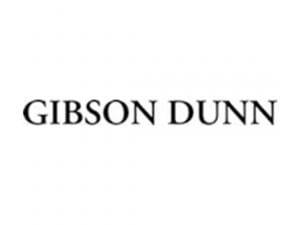
Gibson Dunn is a global law firm that’s based predominately in America, and is renowned for its litigation practise.
A trainee from Gibson Dunn, but based in London, spoke to us about his vacation scheme and his experiences working for an American law firm in the UK.
Herbert Smith Freehills

Herbert Smith Freehills is an international law firm formed from the merging of UK-based Herbert Smith with Australian-based Freehills.
We caught up with two trainees from Herbert Smith Freehills, who discussed training contracts and their lives as trainee solicitors.
We also spoke to a representative at Herbert Smith Freehills who offered us some advice about what they look for in their candidates.
Hogan Lovells

Hogan Lovells is a multinational firm with headquarters both in London and Washington D.C.
It specialises in “government regulatory, litigation and arbitration, corporate, finance, and intellectual property”.
Read the top insights from four trainees currently at Hogan Lovells with our guide Hogan Lovells: Trainee Insights !
Penningtons Manches
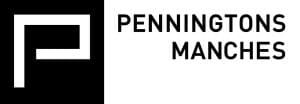
Penningtons Manches is a UK law firm who specialise in “dispute resolution, corporate and commercial, real estate, private client and family”.
Two trainee solicitors talk us through a typical day as part of their training contracts.
Read first-year-trainee Eva’s account here:
Or take a look at KC’s second-year diary here:
Simmons & Simmons
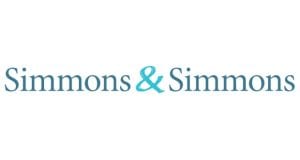
Simmons & Simmons is a global practise with 21 offices across the world.
Three trainees from Simmons & Simmons gave us brief insights into what it’s like working for such a huge law firm.
A fourth seat trainee also gave us an insight into training contract applications.
Finally, you can find two vacation scheme case studies for Simmons & Simmons.
Taylor Vinters

Taylor Vinters is an international law firm with offices in London, Cambridge and Singapore.
Their HR Manager revealed the crucial advice on obtaining a training contract.
She also shared her top tips with us.
Take a look at Taylor Vinter’s Life as a trainee at Taylor Vinters video:
Law Firm Opportunities
Law Firm Directory
Explore key stats, training opportunities and more with our detailed law firm listings.
Stay ahead of the game and keep track of upcoming training contract deadlines.
Keep track of the latest deadlines & get your foot in the door of a top law firm.
Law Firm Open Days
Don't miss an opportunity to meet law firms & register for upcoming open days.
What Are The Magic Circle Law Firms?
You may also like.
- A Court Of Appeal Judge’s Landmark ChatGPT Judgment
- ECHR's Climate Case: Can The Court Redefine The Fight For Our Planet?
- Which Countries Have The Strictest Environmental Laws?
- Commercial Awareness Round-Up: 5 Key Topics You Should Know About
Loading More Content
Protect your data
This site uses cookies and related technologies for site operation, and analytics as described in our Privacy Policy . You may choose to consent to our use of these technologies, reject non-essential technologies, or further manage your preferences.
- 27 Law Firm Interview...
27 Law Firm Interview Questions (and Great Answers)
13 min read · Updated on October 23, 2023

Learn how to answer these common law firm interview questions to separate yourself from the competition
Getting a job with a law firm can be difficult even in the best of times, thanks to the sheer volume of Lawyers in the country and an increasingly competitive jobs market. That's why it's so critical to know how to answer the most common law firm interview questions, to ensure that hiring managers can quickly identify you as a great candidate for their open position.
In this post, we'll consider 27 law firm interview questions and answers. Each of these answers can be used as guidance and inspiration to help you create your own responses, as you prepare for your next interview at a law firm.
1. Why did you decide to pursue a legal career?
“My parents raised me to always try to do the right thing. During my younger years, though, I couldn't help but notice that life wasn't really all that fair, and the right thing was all too often an afterthought. Once I realized that the law was the only thing separating us from societies where the most powerful get to define what's right, there was only one career path that I could choose. To make any kind of real difference in a society based on the rule of law, I had to pursue a career in the legal profession.”
2. What attracted you to our firm?
This question requires you to do your homework before the interview. Find out everything you can about the firm's primary area of expertise, vision, and mission. Then focus on something that aligns well with your own values. For example:
“I've been impressed by the firm's success in protecting its clients' First Amendment rights, and its broader commitment to all civil rights. Those key First Amendment rights have been a major interest of mine since my first year in law school and I've been eagerly looking for an opportunity to be part of a legal team that shares that commitment.”
3. Which areas of the law do you find the most interesting?
Again, it is important to familiarize yourself with the firm's specialties before the interview. Then shape your answer to align with the firm's legal focus. If, for example, the firm handles a lot of criminal defenses, you could say:
“Criminal law is certainly one of the most challenging and interesting areas of legal thought. It's also one of the areas that I focused on in law school. The Constitution's guarantee that every defendant has access to effective legal counsel is one of the most critical civil rights protections. I know that this firm has been committed to providing that high level of legal defense for criminal defendants, and I believe that my own dedication to representing those clients will make me a valuable addition to the team.”
4. What sets you apart from other candidates for this position?
“I can't speak to their qualifications or values, but I do know that one of my strongest attributes is my complete commitment to meeting every client's needs. For me, they're more than just a case number. Each client that I serve has a story to tell - and it's a story that matters to their families and their lives. I like to think that my ability to empathize with them and make their cause my own is one of my key strengths.”
5. What experiences and skill development are you hoping to gain from this role?
“My hope is that I can further develop my research skills, while also gaining more experience working as part of a focused team. Though I do have some familiarity with [cite one of the firm's areas of expertise], I also know that continued exposure to that area of the law is going to provide me with invaluable knowledge and experience that will help me to grow as an Attorney.”
6. Which traits do you think a lawyer needs to be effective?
“Obviously, you need to have command of the fundamentals - good communication skills, an analytical mind, and a firm grounding in legal principles. Given how fast the law has been evolving in recent years, however, I think that the ability to keep pace with those changes and adapt to the times is more important than ever before. In addition, I would add interpersonal skills to that mix, since we need to make sure that every client's experience is as positive as possible.”
7. How would you rate your research skills?
“I've always taken pride in my attention to detail and unwillingness to cut corners. When I research case law, I don't just look for the first case that fits my client's needs, but trace that case backwards and forwards to identify the source of the law and ensure that no part of its principles have been subsequently overruled by more recent cases. Of course, everything starts with fact-gathering and identification of the legal issues involved in any case.”
8. What was the most complex case you worked on?
“That would probably be the first case that I was tasked with leading. The Attorney who was leading the team had resigned to take another job, and I was thrust into the lead role with little warning. To make matters even more challenging, the client had rejected that Attorney's legal strategy, so we had to examine the case from scratch and develop a new approach. Ultimately, we obtained the buy-in we needed and went on to secure a fair settlement that met his needs.”
9. Tell me about a time when you had to work with a difficult client.
“One client who was involved in a property dispute refused to provide us with the accurate information we needed to properly represent their interests. We ended up being forced to hire an outside Investigator to figure out what was going on. In the end, we discovered that our client had no legal grounds to stand on. The partner who had agreed to take on the case ultimately moved to part ways with the client.”
10. Describe your ideal work environment.
“While I am flexible enough to adapt to any work environment, I do prefer a culture that fosters collaboration and team support. Before my time in law school, I spent most of my youth playing football and baseball, which taught me the value of teamwork. That appreciation for working together as a team is something that I've carried over into my legal career.”
11. Tell me about your most recent court filing or legal memorandum.
“My most recent brief was for a case involving [describe the case briefly]. The filing focused on [provide a brief description of the issues your brief addressed] and attempted to convince the court to [detail the outcome that you were seeking]. If you would like to look at it, I have a copy of the brief with me, as well as some other legal documents I've prepared to give you a better idea of my legal writing skills.”
12. What's your typical courtroom strategy?
“In most cases, I prefer a straightforward, assertive approach that lays out the facts and law in a clear way that the Judge and jury can easily understand. I'm zealous in my representation and have found that bold presentations are an essential part of that courtroom strategy. In addition, I always make sure that my team is taking notes during the opposing Counsel's presentation, so that we can effectively counter their arguments.”
13. Tell me about your biggest success as a lawyer.
“I'm especially proud of the [legal issue] cases we brought on behalf of [client or client group]. The cases involved a serious issue that impacts many people, and it was an honor to be part of the team that argued that issue. I'd be thrilled to bring that same level of dedication to your team.”
14. What do you want your career to look like five years from today?
“My hope is that I will have developed a reputation for providing the type of effective counsel that this firm's clients have come to expect. Given the firm's broad portfolio of legal services, I also expect that I will have had ample opportunity to research and argue a wide range of issues before the courts. Most importantly, I look forward to being seen as a leader in our profession.”
15. Describe your biggest weakness to me.
“One weakness that I identified early in my career is my natural tendency to pursue losing causes beyond the point at which I should concede defeat. That's something that I've been working to overcome by listening to my team's feedback. During tough cases, I tend to seek that feedback to ensure that I'm maintaining realistic expectations.”
16. How do you organize your workload?
“Great question! Personally, I rely on a detailed calendar app and task management tools to help me stay organized and on schedule. In addition, I focus on a solid system for prioritizing tasks and use a variety of different templates to standardize and simplify common tasks. I also use time blocks to manage my daily routine and ensure that I meet my priorities each day, week, and month.”
17. Did you have a favorite course in law school?
“My favorite class was criminal law, since I found the evolution of that branch of law to be fascinating. We also had an opportunity to work directly with the Innocence Project and contributed research and briefs to a case that helped free an innocent man from prison. That was one class that I'll never forget!”
18. Tell me about a time when you failed to get the court ruling you expected.
“It was several years ago in a divorce custody case. I was representing the wife and was convinced that we'd provided all the evidence and legal arguments needed to secure her primary custody rights. The Judge saw things differently, however, as opposing Counsel had provided evidence that our client had intentionally hidden from us. That case taught me to challenge client information, to ensure that everything is verified at our end before we ever go into court.”
19. What process do you use to develop trust with clients?
“In my experience, rapport needs to be developed before you can gain anyone's trust. I typically start with our initial interview and employ every active and reflective listening skill I possess to put the client at ease and reassure them that I'm on their side and understand their problem. From that point on, I communicate our strategy, expectations, and processes, so that they are never unsure about how their case is proceeding.”
20. What's your process for dealing with cases that conflict with your personal values?
“My personal values are very important to me, but there are times when cases conflict with those internal needs. When that happens, I remind myself to remain detached so that I can separate my beliefs from the client's needs.”
21. What do you think about the Supreme Court's recent ruling on________?
Make sure that you stay up to date on major court cases, so that you can offer some type of opinion about them. For example, you might respond to question about a free speech case by saying:
“The Court's ruling in [case name] is certainly worthy of note and I tend to agree with the broad stance on protected speech that the majority outlined in its opinion. It will be interesting to see how that case impacts lower court speech rulings in the coming months and years.”
22. Describe a time when you needed to convince members of your team to adopt your viewpoint on a case.
“That has happened on more than one occasion, and there have been times when others have worked to convince me to adopt their point of view. One instance that comes to mind involved a case that seemed to involve two conflicting legal principles. My research identified a case that was similar but not exactly on point, so it took several hours of meetings to run through the relevant case law with everyone and convince them to adopt that strategy.”
23. Tell me about your experience in moot court and the issue that you were advocating.
“We participated in a moot court defamation case that involved a man who was falsely accused of embezzling funds, and was trying to get news websites to delete stories that named him as an alleged criminal. My side was arguing that he should have the same “right to be forgotten” that the citizens of many European nations enjoy. The other side argued that the First Amendment's free press protections trumped that right.”
24. What did your clinical program focus on?
“I chose corporate law, mainly because it was not one of my favorite areas of legal expertise and I wanted to ensure that I was forced to learn about it. It ended up being very interesting, however, and expanded my understanding of the law's real-world impact on the free enterprise system.”
25. What motivates you?
“I'm inspired by the generations of legal giants, who laid the foundation of our current legal system and traditions, and in awe of the impact they've had on creating our modern civilization. I try to think about that historic work daily to ensure that I remain motivated to meet the high bar they set for great client representation and making a positive impact on the world.”
26. How do you handle pressure?
“I went into the legal profession expecting pressure and the job has certainly met those expectations! Personally, though, I thrive in high pressure environments and am at my best when under severe time constraints or when I'm forced to juggle competing priorities. Fortunately, I have a healthy life away from the office, filled with stress-reduction activities and diversions that help me to unplug from the job when I'm at home.”
27. How do you define success in a legal case?
“Obviously, winning is always the goal. But I understand that cases don't always go our way. As a result, I define success by how well I've advocated for my client, whether we've made the best possible argument to the court and done everything ethically possible to ensure that their needs have been met. Even when a case is lost, I can still feel like we did our best if the client walks away satisfied with our effort.”
Learn how to answer these common law firm interview questions to ace your next interview
Law firm interview questions can take a variety of forms, so it's important to do your homework and learn as much as you can about the company before you go to your interview. With the right preparation, you can ensure that you always have a solid answer to every question and make the best possible impression on your interviewer.
Do you want to take your interview preparation efforts to the next level? Contact us today to find out how our expert interview coaching services can help!
Recommended reading:
How to Answer “What Can You Bring to the Company?”
5 Interview Skills That Will Get You Hired
How to Answer “What Are Your Career Aspirations?”
Related Articles:
How to Prepare for a Software Engineering Job Interview
27 Financial Analyst Interview Questions (with Great Answers)
27 Supervisor Interview Questions (and Great Answers)
Need a prep talk?
Learn how to crush your interview with confidence.
Share this article:
Questions? We can help.
Our team is standing by, happy to help answer any questions or address any concerns you may have. Just send us your info and we’ll be right in touch. Or, contact us directly:
1-800-803-6018
Thank you! We will be in touch shortly.

Hacking the Case Interview
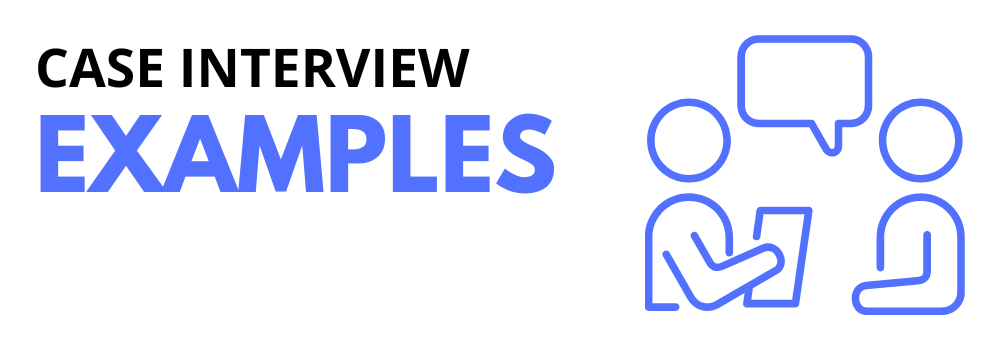
We’ve compiled 50 case interview examples and organized them by industry, function, and consulting firm to give you the best, free case interview practice. Use these case interview examples for practice as you prepare for your consulting interviews.
If you’re looking for a step-by-step shortcut to learn case interviews quickly, enroll in our case interview course . These insider strategies from a former Bain interviewer helped 30,000+ land consulting offers while saving hundreds of hours of prep time.
Case Interview Examples Organized by Industry
Below, we’ve linked all of the case interview examples we could find from consulting firm websites and YouTube videos and organized them by industry. This will be helpful for your case interview practice if there is a specific consulting industry role that you are interviewing for that you need more practice in.
Aerospace, Defense, & Government Case Interview Examples
- Agency V (Deloitte)
- The Agency (Deloitte)
- Federal Finance Agency (Deloitte)
- Federal Civil Cargo Protection Bureau (Deloitte)
Consumer Products & Retail Case Interview Examples
- Electro-light (McKinsey)
- Beautify (McKinsey)
- Shops Corporation (McKinsey)
- Climate Case (BCG)
- Foods Inc. (BCG) *scroll to bottom of page
- Chateau Boomerang (BCG) *written case interview
- PrintCo (Bain)
- Coffee Co. (Bain)
- Fashion Co. (Bain)
- Recreation Unlimited (Deloitte)
- Footlose (Deloitte)
- National Grocery and Drug Store (Kearney)
- Whisky Co. (OC&C)
- Dry Cleaners (Accenture) *scroll to page 15
- UK Grocery Retail (Strategy&) *scroll to page 24
- Ice Cream Co. (Capital One)
Healthcare & Life Sciences Case Interview Examples
- GlobaPharm (McKinsey)
- GenCo (BCG) *scroll to middle of page
- PrevenT (BCG)
- MedX (Deloitte)
- Medical Consumables (LEK)
- Medicine Company (HackingTheCaseInterview)
- Pharma Company (Indian Institute of Management)
Manufacturing & Production Case Interview Examples
- Aqualine (Oliver Wyman)
- 3D Printed Hip Implants (Roland Berger)
- Talbot Trucks (McKinsey)
- Playworks (Yale School of Management)
Social & Non-Profit Case Interview Examples
- Diconsa (McKinsey)
- National Education (McKinsey)
- Conservation Forever (McKinsey)
- Federal Health Agency (Deloitte)
- Robinson Philanthropy (Bridgespan)
- Home Nurses for New Families (Bridgespan)
- Reach for the Stars (Bridgespan)
- Venture Philanthropy (Bridgespan)
Technology, Media, & Telecom Case Interview Examples
- NextGen Tech (Bain)
- Smart Phone Introduction (Simon-Kucher)
- MicroTechnos (HackingTheCaseInterview)
Transportation Case Interview Examples
- Low Cost Carrier Airline (BCG)
- Transit Oriented Development (Roland Berger)
- Northeast Airlines (HackingTheCaseInterview)
- A+ Airline Co. (Yale School of Management)
- Ryder (HackingTheCaseInterview)

Travel & Entertainment Case Interview Examples
- Wumbleworld (Oliver Wyman)
- Theater Co. (LEK)
- Hotel and Casino Co. (OC&C)
Case Interview Examples Organized by Function
Below, we’ve taken the same cases listed in the “Case Interview Examples Organized by Industry” section and organized them by function instead. This will be helpful for your case interview practice if there is a specific type of case interview that you need more practice with.
Profitability Case Interview Examples
To learn how to solve profitability case interviews, check out our video below:
Market Entry Case Interview Examples
Merger & acquisition case interview examples.
Growth Strategy Case Interview Examples
Pricing case interview examples.
New Product Launch Case Interview Examples
Market sizing case interview examples.
To learn how to solve market sizing case interviews, check out our video below:
Operations Case Interview Examples
Other case interview examples.
These are cases that don’t quite fit into any of the above categories. These cases are the more unusual, atypical, and nontraditional cases out there.
Case Interview Examples Organized by Consulting Firm
Below, we’ve taken the same cases listed previously and organized them by company instead. This will be helpful for your case interview practice if there is a specific company that you are interviewing with.
McKinsey Case Interview Examples
BCG Case Interview Examples
Bain Case Interview Examples
Deloitte Case Interview Examples
Lek case interview examples, kearney case interview examples, oliver wyman case interview examples, roland berger case interview examples, oc&c case interview examples, bridgespan case interview examples, strategy& case interview examples, accenture case interview examples, simon kutcher case interview examples, capital one case interview examples, case interview examples from mba casebooks.
For more case interview examples, check out our article on 23 MBA consulting casebooks with 700+ free practice cases . There additional cases created by MBA consulting clubs that make for great case interview practice. For your convenience, we’ve listed some of the best MBA consulting casebooks below:
- Australian Graduate School of Management (2002)
- Booth (2005)
- Columbia (2007)
- Darden (2019)
- ESADE (2011)
- Fuqua (2018)
- Goizueta (2006)
- Haas (2019)
- Harvard Business School (2012)
- Illinois (2015)
- INSEAD (2011)
- Johnson (2003)
- Kellogg (2012)
- London Business School (2013)
- McCombs (2018)
- Notre Dame (2017)
- Queens (2019)
- Ross (2010)
- Sloan (2015)
- Stern (2018)
- Tuck (2009)
- Wharton (2017)
- Yale (2013)
Consulting casebooks are documents that MBA consulting clubs put together to help their members prepare for consulting case interviews. Consulting casebooks provide some case interview strategies and tips, but they mostly contain case interview practice cases.
While consulting casebooks contain tons of practice cases, there is quite a bit of variety in the sources and formats of these cases.
Some practice cases are taken from actual consulting interviews given by consulting firms. These are the best types of cases to practice with because they closely simulate the length and difficulty of an actual case interview. Other practice cases may be written by the consulting club’s officers. These cases are less realistic, but can still offer great practice.
The formats of the practice cases in consulting casebooks also vary significantly.
Some practice cases are written in a question and answer format. This type of format makes it easy to practice the case by yourself, without a case partner. Other practices cases are written in a dialogue format. These cases are better for practicing with a case interview partner.
MBA consulting casebooks can be a great resource because they are free and provide tons of practice cases to hone your case interview skills. However, there are several caveats that you should be aware of.
- Similarity to real case interviews : Some cases in MBA consulting casebooks are not representative of actual case interviews because they are written by consulting club officers instead of interviewers from consulting firms
- Quality of sample answers : While consulting casebooks provide sample solutions, these answers are often not the best or highest quality answers
- Ease of use : Consulting casebooks are all written in different formats and by different people. Therefore, it can be challenging to find cases that you can consistently use to practice cases by yourself or with a partner
Therefore, we recommend that you first use the case interview examples listed in this article and wait until you’ve exhausted all of them before using MBA consulting casebooks.
Case Interview Examples from HackingTheCaseInterview
Below, we've pulled together several of our very own case interview examples. You can use these case interview examples for your case interview practice.
1. Tech retailer profitability case interview
2. Airline profitability case interview
3. Ride sharing app market entry
4. Increasing Drug Adoption
How to Use Case Interview Examples to Practice Case Interviews
To get the most out of these case interview examples and maximize your time spent on case interview practice, follow these three steps.
1. Understand the case interview structure beforehand
If case interviews are something new to you, we recommend watching the following video to learn the basics of case interviews in under 30 minutes.
Know that there are seven major steps of a case interview.
- Understanding the case background : Take note while the interviewer gives you the case background information. Afterwards, provide a concise synthesis to confirm your understanding of the situation and objective
- Asking clarifying questions : Ask questions to better understand the case background and objective
- Structuring a framework : Lay out a framework of what areas you want to look into in order to answer or solve the case
- Kicking off the case : Propose an area of your framework that you would like to dive deeper into
- Solving quantitative problems : Solve a variety of different quantitative problems, such as market sizing questions and profitability questions. You may also be given charts and graphs to analyze or interpret
- Answering qualitative questions : You may be asked to brainstorm ideas or be asked to give your business opinion on a particular issue or topic
- Delivering a recommendation : Summarize the key takeaways from the case to deliver a firm and concise recommendation
2. Learn how to practice case interviews by yourself
There are 6 steps to practice case interviews by yourself. The goal of these steps is to simulate a real case interview as closely as you can so that you practice the same skills and techniques that you are going to use in a real case interview.
- Synthesize the case background information out loud : Start the practice case interview by reading the case background information. Then, just as you would do in a live case interview, summarize the case background information out loud
- Ask clarifying questions out loud : Just as you would do in a live case interview, ask clarifying questions out loud. Although you do not have a case partner that can answer your questions, it is important to practice identifying the critical questions that need to be asked to fully understand the case
- Structure a framework and present it out loud : Pretend that you are in an actual interview in which you’ll only have a few minutes to put together a comprehensive and coherent framework. Replicate the stress that you will feel in an interview when you are practicing case interviews on your own by giving yourself time pressure.
When you have finished creating your framework, turn your paper around to face an imaginary interviewer and walk through the framework out loud. You will need to get good at presenting your framework concisely and in an easy to understand way.
- Propose an area to start the case : Propose an area of your framework to start the case. Make sure to say out loud the reasons why you want to start with that particular area
- Answer each case question out loud : If the question is a quantitative problem, create a structure and walk the interviewer through how you would solve the problem. When doing math, do your calculations out loud and explain the steps that you are taking.
If the question is qualitative, structure your thinking and then brainstorm your ideas out loud. Walk the interviewer through your ideas and opinions.
- Deliver a recommendation out loud : Just as you would do in a real case interview, ask for a brief moment to collect your thoughts and review your notes. Once you have decided on a recommendation, present your recommendation to the interviewer.
3. Follow best practices while practicing case interviews :
You’ll most likely be watching, reading, or working through these case interview examples by yourself. To get the most practice and learnings out of each case interview example, follow these tips:
- Don’t have notes or a calculator out when you are practicing since you won’t have these in your actual interview
- Don’t take breaks in the middle of a mock case interview
- Don’t read the case answer until you completely finish answering each question
- Talk through everything out loud as if there were an interviewer in the room
- Occasionally record yourself to understand what you look like and sound like when you speak
4. Identify improvement areas to work on
When the case is completed, review your framework and answers and compare them to the model answers that the case provides. Reflect on how you could have made your framework or answers stronger.
Also, take the time to reflect on what parts of the case you could have done better. Could your case synthesis be more concise? Was your framework mutually exclusive and collectively exhaustive? Could your math calculations be done more smoothly? Was your recommendation structured enough?
This is the most important part of practicing case interviews by yourself. Since you have no partner to provide you feedback, you will need to be introspective and identify your own improvement areas.
At the end of each practice case interview, you should have a list of new things that you have learned and a list of improvement areas to work on in future practice cases. You’ll continue to work on your improvement areas in future practice cases either by yourself or with a partner.
5. Eventually find a case partner to practice with
You can only do so many practice case interviews by yourself before your learning will start to plateau. Eventually, you should be practicing case interviews with a case partner.
Practicing with a case partner is the best way to simulate a real case interview. There are many aspects of case interviews that you won’t be able to improve on unless you practice live with a partner:
- Driving the direction of the case
- Asking for more information
- Collaborating to get the right approach or structure
- Answering follow-up questions
If you are practicing with a case partner, decide who is going to be giving the case and who is going to be receiving the case.
If you are giving the case, read the entire case information carefully. It may be helpful to read through everything twice so that you are familiar with all of the information and can answer any question that your partner asks you to clarify.
As the person giving the case, you need to be the case expert.
You should become familiar with the overall direction of the case. In other words, you should know what the major questions of the case are and what the major areas of investigation are. This will help you run the mock case interview more smoothly.
Depending on whether you want the case interview to be interviewer-led or candidate-led, you will need to decide how much you want to steer the direction of the case.
If your partner gets stuck and is taking a long time, you may need to step in and provide suggestions or hints. If your partner is proceeding down a wrong direction, you will need to direct them towards the right direction.
Where to Find More Case Interview Examples
To find more case interview examples, you can use a variety of different case interview prep books, online courses, and coaching. We'll cover each of these different categories of resources for more case interview practice in more detail.
Case Interview Prep Books
Case interview prep books are great resources to use because they are fairly inexpensive, only costing $20 to $30. They contain a tremendous amount of information that you can read, digest, and re-read at your own pace.
Based on our comprehensive review of the 12 popular case interview prep books , we ranked nearly all of the case prep books in the market.
The three case interview prep books we recommend using are:
- Hacking the Case Interview : In this book, learn exactly what to do and what to say in every step of the case interview. This is the perfect book for beginners that are looking to learn the basics of case interviews quickly.
- The Ultimate Case Interview Workbook : In this book, hone your case interview skills through 65+ problems tailored towards each type of question asked in case interviews and 15 full-length practice cases. This book is great for intermediates looking to get quality practice.
- Case Interview Secrets : This book provides great explanations of essential case interview concepts and fundamentals. The stories and anecdotes that the author provides are entertaining and help paint a clear picture of what to expect in a case interview, what interviewers are looking for, and how to solve a case interview.
Case Interview Courses
Case interview courses are more expensive to use than case interview prep books, but offer more efficient and effective learning. You’ll learn much more quickly from watching someone teach you the material, provide examples, and then walk through practice problems than from reading a book by yourself.
Courses typically cost anywhere between $200 to $400.
If you are looking for a single resource to learn the best case interview strategies in the most efficient way possible, enroll in our comprehensive case interview course .
Through 70+ concise video lessons and 20 full-length practice cases based on real interviews from top-tier consulting firms, you’ll learn step-by-step how to crush your case interview.
We’ve had students pass their consulting first round interview with just a week of preparation, but know that your success depends on the amount of effort you put in and your starting capabilities.
Case Interview Coaching
With case interview coaching, you’ll pay anywhere between $100 to $300 for a 40- to 60-minute mock case interview session with a case coach. Typically, case coaches are former consultants or interviewers that have worked at top-tier consulting firms.
Although very expensive, case interview coaching can provide you with high quality feedback that can significantly improve your case interview performance. By working with a case coach, you will be practicing high quality cases with an expert. You’ll get detailed feedback that ordinary case interview partners are not able to provide.
Know that you do not need to purchase case interview coaching to receive a consulting job offer. The vast majority of candidates that receive offers from top firms did not purchase case interview coaching. By purchasing case interview coaching, you are essentially purchasing convenience and learning efficiency.
Case interview coaching is best for those that have already learned as much as they can about case interviews on their own and feel that they have reached a plateau in their learning. For case interview beginners and intermediates, it may be a better use of their money to first purchase a case interview course or case interview prep book before purchasing expensive coaching sessions.
If you do decide to eventually use a case interview coach, consider using our case coaching service .
There is a wide range of quality among coaches, so ensure that you are working with someone that is invested in your development and success. If possible, ask for reviews from previous candidates that your coach has worked with.
Summary of the Best Case Interview Resources
To prepare for consulting case interviews, we recommend the following resources to find more case interview examples and practice:
- Comprehensive Case Interview Course (our #1 recommendation): The only resource you need. Whether you have no business background, rusty math skills, or are short on time, this step-by-step course will transform you into a top 1% caser that lands multiple consulting offers.
- Hacking the Case Interview Book (available on Amazon): Perfect for beginners that are short on time. Transform yourself from a stressed-out case interview newbie to a confident intermediate in under a week. Some readers finish this book in a day and can already tackle tough cases.
- The Ultimate Case Interview Workbook (available on Amazon): Perfect for intermediates struggling with frameworks, case math, or generating business insights. No need to find a case partner – these drills, practice problems, and full-length cases can all be done by yourself.
- Case Interview Coaching : Personalized, one-on-one coaching with former consulting interviewers
- Behavioral & Fit Interview Course : Be prepared for 98% of behavioral and fit questions in just a few hours. We'll teach you exactly how to draft answers that will impress your interviewer
- Resume Review & Editing : Transform your resume into one that will get you multiple interviews
Land Multiple Consulting Offers
Complete, step-by-step case interview course. 30,000+ happy customers.
- Log in
- Site search
9 questions you might be asked in a law interview
Interviewing for a job in a field as prestigious and competitive as law can be nerve wracking. Preparation is key so practice and polish your answers to these common law interview questions
The type of interview you'll face when applying for a law job really depends on the firm and the role you've applied for, but candidates can often expect to face a telephone or video interview and a panel interview , which may be conducted by a combination of graduate recruitment and fee-earning colleagues.
Jack Yusuf, trainee solicitor at White & Case explains the three types of questions you'll come up against in a training contract job interview:
- Motivational questions - where the interviewer will ask you to provide your personal reasons for becoming a commercial lawyer and for applying to the particular firm in question.
- Competency questions - the interviewer will ask you to provide examples to show you have the specific attributes required of a trainee solicitor.
- Commercial awareness questions - questions on commercial topics to better understand your level of commercial awareness.
When interviewing for training contracts you might also face a case study scenario, in which you'll review several documents and then present back to the panel on risks and opportunities facing the potential client.
Just like in all job interviews, it pays to be prepared. Take a look at the following example questions and discover how to answer them.
1. Why do you want to become a solicitor?
This sounds like an easy opening, but it throws many candidates off their stride.
When answering, consider the type of firm you're interviewing for. 'Commercial law firms want to know that you have a genuine and specific interest in commercial work, not just legal work generally,' advises Jack. 'Interviewers also want to know that you truly understand what the role entails.'
Look at the firm's main website - not just their recruitment website, as it often contains useful information about the sectors that the firm is active in.
This question can be phrased in number of ways, such as:
- why choose a career in law?
- why have you applied to us?
'Be specific and personal in your answer and provide examples of experiences that shaped your interests. Conversely, avoid general descriptors (e.g. 'fast-paced' or 'intellectually stimulating') that could apply to numerous other professions,' adds Jack.
Questions about why you chose the type of law you'd like to practice are also common, so be prepared to explain your choice.
Highlight your breadth of legal work experience and identify which specific element led you to pursue a career in your chosen specialism and why. Give details of the experience you've sought in your preferred field and how this has strengthened your interest in this area of law.
Vacation schemes aren't the only experience of value, so be sure to mention periods of work shadowing and relevant extracurricular activities. For example, you could use your experience volunteering with a victim's rights charity to demonstrate your passion for criminal law, your captaincy of a university sports team to show your interest in sports law or your creation and management of a local event, such as a fashion show or music or arts festival, to show your commerciality.
Gain an insight into the reality of working in law .
2. Have you applied to other firms?
This isn't a trick question. Be honest and specific in your answer.
Name two or three other firms that you've applied to, with a common reason why - such as they all share a similar culture, or they guarantee all trainees an international secondment. This demonstrates consistency in your applications. It shows the employer that you're committed to your field and determined to build a career in a certain practice area.
Don't be afraid to mention an application to a competitor firm. If you impress with the rest of your interview, this may work in your favour as recruiters are unlikely to want a talented candidate working for the competition.
3. What attracted you to this firm?
'The interviewer is looking to see that you have researched the firm and truly want to work there,' says Jack. 'Be specific to the firm and evidence your interest with any experience - for example, did you speak to a member of the firm at a university law fair? Attend an open day? Reach out to someone on LinkedIn? Did you attend a legal event where the firm presented?'
Also draw on experiences such as insight days and any work experience that confirmed they were the right firm for you.
Are there any benefits, initiatives, employee networks or schemes on offer unique to the firm that set them apart from their competitors? Bear in mind that answering 'Because you pay higher trainee salaries' is unlikely to impress.
Further demonstrate your knowledge by mentioning a couple of recent cases of interest or express a wish to work with specific clients.
You may also be asked:
- What do you know about our firm?
- Why do you want to work for us over our competitors?
Read up on top UK law firms then search for law jobs .
4. How would you make yourself stand out as a trainee?
Where training contracts are concerned there are far more applicants than places, so this is your opportunity to highlight your unique selling points and make clear what you could bring to the firm.
Identify key strengths and experiences using real, relevant examples. Don't just say that you're a great problem solver; instead tell the interviewer how you demonstrated this skill in a student mooting competition. 'Try to pick examples from a varied range of experiences, whether from your academic studies, legal work experience, employment, or extra-curricular activities,' adds Jack.
This is also a good time to demonstrate how the culture and values of the firm fit with your own. Are there any social or charity events that you'd be keen to get involved in? Are there any organisational sports teams you'd like to join? Would you like to play a role and make your mark on employee networks such as LGBTQ+, women's or ethnicity groups? Are there any gaps in the firm's social offering that you could fill?
5. If you could bring any law into force what would it be and why?
Another variation of this question is 'which law would you like to change and why?' Questions like this test your legislative knowledge, as well as provide an insight into your judicial opinions. Your response will also highlight the areas of law you're passionate about.
Avoid choosing anything too controversial. Picking a law or legal issue that has recently been in the news is a good option, as it demonstrates that your legal knowledge is up to date. Alternatively, choose to introduce a law that would directly benefit the firm or its clients.
6. Give an example of a time you used your ability to negotiate.
In a law interview demonstrating your knowledge of the firm is all well and good, but you also need to show that you're qualified for the job. This is where strength and competency-based questions come in.
These questions require you to give relevant examples of a time that you have demonstrated the necessary skills and competencies, and are a common feature of all job interviews .
Where possible use examples from your legal work experience, but don't be afraid to draw on your time at university, extracurricular activities, gap year experience or part-time work.
Use the STAR (situation, task, action and result) method to structure your answer.
Other skills and competency-based questions include:
- Tell us about a time you worked as a team.
- Give an example of a time you dealt with conflict and how you resolved this.
- What achievement are you most proud of?
- How would your friends describe you?
7. In a client meeting your supervisor gives incorrect advice. What do you do?
Similar questions include:
- You're alone in the office and a client calls demanding instant advice. What do you do?
- What would you do if three partners all came to you with work they wanted doing by 5pm?
- What would you do if a client asked you to do something that was legal but morally questionable?
While questions centred on a dilemma can be uncomfortable to answer, they're asked to test your situational judgement.
The best way to prepare for these types of questions is to read the Solicitors Regulation Authority (SRA) Code of Conduct , which states that all trainees and solicitors must act with integrity and in the best interests of each client. It also states that you should provide a proper standard of service to clients and behave in a way that maintains the trust that the public places in you. Any behaviour that contradicts this code of conduct requires action.
8. Can you talk us through a current issue affecting law firms?
When asked, legal recruiters say that commercial awareness is one of the most important skills that a candidate can possess.
Your response needs to prove that you have an understanding of industry, regulatory, economic, cultural and social issues, as well as company identity and structure.
To tackle questions surrounding commercial awareness watch the news and read newspapers daily. Sign up to legal newsletters and set up notification alerts on you phone to receive the latest business news. Check firm websites and follow their social media accounts.
Alternatively, you may be asked:
- What are the main challenges facing city law firms today?
- What recent legal stories have caught your eye and how are they progressing?
9. Which three historical figures would you invite to a dinner party and why?
Not all candidates come up against off-the-wall questions, but some firms use them to get to know an interviewee better and to test how they think on their feet.
In the majority of instances there is no right or wrong answer - so don't panic. Recruiters simply want to hear how you think through an issue.
Talk through your response to demonstrate logical thinking and conversational ability and back it up with an explanation.
Similar types of questions include:
- If you were stranded on a desert island what five items would you take and why?
- Define religion.
- How many cars are there in the UK?
Law firm interview tips
A good way to round up your interview is by taking the opportunity to ask some questions of your own. Ask questions that demonstrate your interest in progression and building a long-term career with the firm. For example, ask about the kind of responsibility given to trainees, skills that the interviewer has found important in previous trainees and any plans the firm has for expansion or investment over the next few years. When it comes to asking more general questions, see 7 good questions to ask at an interview .
The best advice is to remember that interviews are all about people. While this is your opportunity to discover if you'd like to work for the firm, the interviewer is trying to find out if you'd be a valuable addition to their team. The interviewer is working out whether they want to work with you. They're trying to figure out if you'll be worth the investment. Would they be happy to work with you every day? Can they put you in front of a client? Don't be intimidated. Be positive and be yourself.
Find out more
- See what the legal sector has to offer.
- Discover how to become a lawyer .
- Learn more about different law careers .
How would you rate this page?
On a scale where 1 is dislike and 5 is like
- Dislike 1 unhappy-very
- Like 5 happy-very
Thank you for rating the page
47 case interview examples (from McKinsey, BCG, Bain, etc.)

One of the best ways to prepare for case interviews at firms like McKinsey, BCG, or Bain, is by studying case interview examples.
There are a lot of free sample cases out there, but it's really hard to know where to start. So in this article, we have listed all the best free case examples available, in one place.
The below list of resources includes interactive case interview samples provided by consulting firms, video case interview demonstrations, case books, and materials developed by the team here at IGotAnOffer. Let's continue to the list.
- McKinsey examples
- BCG examples
- Bain examples
- Deloitte examples
- Other firms' examples
- Case books from consulting clubs
- Case interview preparation
Click here to practise 1-on-1 with MBB ex-interviewers
1. mckinsey case interview examples.
- Beautify case interview (McKinsey website)
- Diconsa case interview (McKinsey website)
- Electro-light case interview (McKinsey website)
- GlobaPharm case interview (McKinsey website)
- National Education case interview (McKinsey website)
- Talbot Trucks case interview (McKinsey website)
- Shops Corporation case interview (McKinsey website)
- Conservation Forever case interview (McKinsey website)
- McKinsey case interview guide (by IGotAnOffer)
- McKinsey live case interview extract (by IGotAnOffer) - See below
2. BCG case interview examples
- Foods Inc and GenCo case samples (BCG website)
- Chateau Boomerang written case interview (BCG website)
- BCG case interview guide (by IGotAnOffer)
- Written cases guide (by IGotAnOffer)
- BCG live case interview with notes (by IGotAnOffer)
- BCG mock case interview with ex-BCG associate director - Public sector case (by IGotAnOffer)
- BCG mock case interview: Revenue problem case (by IGotAnOffer) - See below
3. Bain case interview examples
- CoffeeCo practice case (Bain website)
- FashionCo practice case (Bain website)
- Associate Consultant mock interview video (Bain website)
- Consultant mock interview video (Bain website)
- Written case interview tips (Bain website)
- Bain case interview guide (by IGotAnOffer)
- Digital transformation case with ex-Bain consultant
- Bain case mock interview with ex-Bain manager (below)
4. Deloitte case interview examples
- Engagement Strategy practice case (Deloitte website)
- Recreation Unlimited practice case (Deloitte website)
- Strategic Vision practice case (Deloitte website)
- Retail Strategy practice case (Deloitte website)
- Finance Strategy practice case (Deloitte website)
- Talent Management practice case (Deloitte website)
- Enterprise Resource Management practice case (Deloitte website)
- Footloose written case (by Deloitte)
- Deloitte case interview guide (by IGotAnOffer)
5. Accenture case interview examples
- Case interview workbook (by Accenture)
- Accenture case interview guide (by IGotAnOffer)
6. OC&C case interview examples
- Leisure Club case example (by OC&C)
- Imported Spirits case example (by OC&C)
7. Oliver Wyman case interview examples
- Wumbleworld case sample (Oliver Wyman website)
- Aqualine case sample (Oliver Wyman website)
- Oliver Wyman case interview guide (by IGotAnOffer)
8. A.T. Kearney case interview examples
- Promotion planning case question (A.T. Kearney website)
- Consulting case book and examples (by A.T. Kearney)
- AT Kearney case interview guide (by IGotAnOffer)
9. Strategy& / PWC case interview examples
- Presentation overview with sample questions (by Strategy& / PWC)
- Strategy& / PWC case interview guide (by IGotAnOffer)
10. L.E.K. Consulting case interview examples
- Case interview example video walkthrough (L.E.K. website)
- Market sizing case example video walkthrough (L.E.K. website)
11. Roland Berger case interview examples
- Transit oriented development case webinar part 1 (Roland Berger website)
- Transit oriented development case webinar part 2 (Roland Berger website)
- 3D printed hip implants case webinar part 1 (Roland Berger website)
- 3D printed hip implants case webinar part 2 (Roland Berger website)
- Roland Berger case interview guide (by IGotAnOffer)
12. Capital One case interview examples
- Case interview example video walkthrough (Capital One website)
- Capital One case interview guide (by IGotAnOffer)
12. EY Parthenon case interview examples
- Candidate-led case example with feedback (by IGotAnOffer)
14. Consulting clubs case interview examples
- Berkeley case book (2006)
- Columbia case book (2006)
- Darden case book (2012)
- Darden case book (2018)
- Duke case book (2010)
- Duke case book (2014)
- ESADE case book (2011)
- Goizueta case book (2006)
- Illinois case book (2015)
- LBS case book (2006)
- MIT case book (2001)
- Notre Dame case book (2017)
- Ross case book (2010)
- Wharton case book (2010)
Practice with experts
Using case interview examples is a key part of your interview preparation, but it isn’t enough.
At some point you’ll want to practise with friends or family who can give some useful feedback. However, if you really want the best possible preparation for your case interview, you'll also want to work with ex-consultants who have experience running interviews at McKinsey, Bain, BCG, etc.
If you know anyone who fits that description, fantastic! But for most of us, it's tough to find the right connections to make this happen. And it might also be difficult to practice multiple hours with that person unless you know them really well.
Here's the good news. We've already made the connections for you. We’ve created a coaching service where you can do mock case interviews 1-on-1 with ex-interviewers from MBB firms . Start scheduling sessions today!
Related articles:

At home, abroad, working, interning? Wherever you are this summer, contact OCS or make an appointment for a virtual advising session. We are available all summer!
- Undergraduates
- Ph.Ds & Postdocs
- Prospective Students & Guests
- What is a Community?
- Student Athletes
- First Generation and/or Low Income Students
- International Students
- LGBTQ Students
- Students of Color
- Students with Disabilities
- Student Veterans
- Exploring Careers
- Advertising, Marketing & PR
- Finance, Insurance & Real Estate
- General Management & Leadership Development Programs
- Law & Legal Services
- Startups, Entrepreneurship & Freelance Work
- Environment, Sustainability & Energy
- Media & Communications
- Policy & Think Tanks
- Engineering
- Healthcare, Biotech & Global Public Health
- Life & Physical Sciences
- Programming & Data Science
- Graduate School
- Health Professions
- Business School
- Meet with OCS
- Student Organizations Workshop Request
- OCS Podcast Series
- Office of Fellowships
- Navigating AI in the Job Search Process
- Cover Letters & Correspondence
- Job Market Insights
- Professional Conduct & Etiquette
- Professional Online Identity
- Interview Preparation
- Resource Database
- Yale Career Link
- Jobs, Internships & Other Experiences
- Gap Year & Short-Term Opportunities
- Planning an International Internship
- Funding Your Experience
- Career Fairs/Networking Events
- On-Campus Recruiting
- Job Offers & Salary Negotiation
- Informational Interviewing
- Peer Networking Lists
- Building Your LinkedIn Profile
- YC First Destinations
- YC Four-Year Out
- GSAS Program Statistics
- Statistics & Reports
- Contact OCS
- OCS Mission & Policies
- Additional Yale Career Offices
Case Interview Study Samples
- Share This: Share Case Interview Study Samples on Facebook Share Case Interview Study Samples on LinkedIn Share Case Interview Study Samples on X
These case studies represent cases across firm styles (McKinsey, Bain, BCG, Deloitte, & more), including interviewer-led and interviewee-led (candidate-led) cases. The video examples demonstrate the nuances of the virtual case interview and include feedback from an MBB coach. The sessions feature consultants or consulting candidates.
Office of Career Strategy
Visiting yale.
Get a free copy of NCL's Law Firm Insiders' Guide
How to prepare for a law firm assessment centre.
Who are Next CIty Lawyer?
We are a team of qualified lawyers from US, Magic Circle and Silver Circle law firms law firms. We publish articles like this one every fortnight to give you the inside scoop on how to secure your training contract.
With years of experience analysing and reviewing documents for some of the world's most sophisticated clients, we've channeled the same level of care and attention into curating our database of successful applications to world's best commercial law firms.
Introduction to training contract assessment centres
Law firm assessment centres are daunting events, but they are the final hurdle that you need to clear to secure a vacation scheme or training contract.
This article explains how to prepare for the two most common assessment centre exercises at commercial law firms. We will cover:
- Competency / motivational interviews which focus on whether you have the right skills and attitude to succeed on your training contract
- Commercial case studies which test your ability to think logically and deal with common commercial topics
You may encounter additional tests which form part of the recruitment process at your assessment centre (e.g. group exercises, written exercises, psychometric tests or negotiation exercises). We plan to release other articles covering common topics like how to succeed in group exercises at assessment days shortly.
Competency / Motivational Interview
This interview is by far the most common kind of assessment you will face at law firm assessment centres. Although they vary in time, length and structure, most candidates will have to answer competency and motivational interview questions.
- Competency questions focus on your skills. These questions are open-ended (e.g. ‘tell me about a time when…’) and then state a situation or a particular skill. For example, ‘tell me about a time when you demonstrated good teamwork’.
- Motivational questions are questions which relate to your motivations or commitment towards a career in commercial law or the law firm you are interviewing at. Such questions may be phrased as follows: ‘why do you want to pursue a career in commercial law?’, or ‘why do you want to train at [ insert firm here ]?’.
Many candidates find these kinds of questions challenging. They are personal in nature and require preparation in advance. It’s unlikely that you can improvise an answer of sufficient quality on the spot. The aim is prepare so effectively that your answer ticks all of the boxes on your interviewer’s marking scheme while sounding completely natural.
Preparation
It's worth over-indexing on preparation before your assessment day.
The first step is to prepare a table of competency/motivational questions: write down typical questions on the left-hand side and leave space for your answers in the right-hand column.
You should write out your answers in full. However, we would suggest putting a word limit of 400 words per answer. The average person speaks at approximately 150 words per minute. This means that a 400 word answer would take you just over 2.5 minutes to get through. It’s important to speak at a pace that is easy to follow, so a 2.5 minute answer should take about three minutes to deliver at interview.
By writing out your answers, you are able to formulate a strong, logical structure and provide yourself with a safety net should your mind suddenly go blank in the interview.
For illustrative purposes only, it may look something like this:

Naturally, your table will have far more rows that the one above. We would recommend that you prepare answers for the following basic competencies:
- Teamwork and leadership skills
- Organisation and time management
- Communication skills (including examples of dealing with difficult people/persuasion/negotiation)
- Entrepreneurship/innovation
- Determination/motivation
- Dealing with a set-back/failure
- Adaptability/flexibility
After you have prepared your answers, you may then want to transition to flashcards. Write the question on one side, and a bullet point version of your answer on the other side. Mix up the cards and test yourself on them until you can confidently answer the questions with responses that range from one to three minutes long.
Application
When you are in the real interview, it is unlikely that it will be a robotic question-and-answer process. Your interviewer is likely to adopt a conversational tone and expect that you do the same. Notwithstanding your thorough preparation, it is important that you deliver your answers in a natural manner
Once you know your answers off by heart, you should take some small liberties with the script you have prepared. This will allow your tone to be more natural and appear more spontaneous. This is an old actors’ trick: you must know your lines so well that you are able to act as though that they are coming to your head in the moment, just like the character in the scene would have happen to them.
Some interviewers will ask you direct questions, whilst some will amend the questions, which will force you to change your answer in the moment. However, so long as you have done your preparation, you need not worry – you already have the answers in your head. All you need to do is shuffle the content around to provide an appropriate response.
For example, your interviewer may ask you ‘tell me about a time when you have demonstrated strong organisational skills’. You may give your response, and the interviewer replies with, ‘that is great – but what about when that does not work out? How do you deal with that?’. This question is technically a follow-up question about your organisational skills but alludes to your ability to deal with set-backs and failure.
Consequently, you should answer with a response that transitions from your organisational answer to your set-backs answer. Again, if you have done your preparation, this will come naturally as you will not be trying to quickly make up a retort on the spot.
Case Study / Presentation Exercise

One of the most challenging assessments that candidates face at assessment centres is the case study/presentation exercise. This assessment is a test of your comprehension skills, commercial awareness and your application of technical knowledge. It differs to group exercises because it's usually 1-1, rather than alongside other candidates.
The exercise will usually involve you receiving a bundle of documents to review over the course of 30-45 minutes. You will probably receive some prompts and questions within the documents and, at the end of the allotted time, you will relay your findings to a partner over the course of a 5-15 minute presentation.
Like mock exam papers, the best way to prepare for a case study is to carry out practice tests before your assessment day. The NCL practice case study is our own custom case study that covers many of the areas that law firms will assess you on. By itself, though, that’s not enough – you need feedback on improvement points and visibility of what the best answers involve. Our case study therefore includes step-by-step commentary with a model answer and an explanation of the concepts employed.
Other than the NCL case study, there are some other ways to supplement your knowledge. Crucially, you should be looking to build your technical knowledge. By technical knowledge we mean your financial, commercial, and legal knowledge. This includes topics like:
- Acquisition structure (sale purchase or asset purchase).
- Acquisition financing (debt or equity).
- Representations, warranties and indemnities.
Alongside this, you will also need to have broader commercial acumen. You will be expected to analyse a situation and consider whether it makes good commercial sense. For example, you may be asked whether your client, an e-commerce business, should acquire a high-street retailer who only has bricks-and-mortar stores. If your client only wants to expand its online presence, the acquisition seems like a bad idea. Furthermore, bring in your knowledge of current affairs: the pandemic has accelerated the decline of the high-street. Hence, even if your client wants to have a physical presence, you may want to advise them on the risks of pursuing that objective.
Building your commercial awareness and technical knowledge is a staightforward but time-consuming process. We recommend the following actions:
- Listen to the Financial Times News Briefing podcast every morning. It's about 10 minutes long and gives an excellent summary of the most important commercial news stories
- Read the Financial Times or the Economist's business section as much as possible
- Read the same legal press that the law firm partners read. Legal Business is particularly insightful
- Watch one hour of Bloomberg TV a day (it is free for one hour each day). This is more advanced but will give you an excellent insight into financial matters and provide you with some top-level analysis
- Read some basic introductory books on commercial concepts (e.g. Stoakes’ ‘All you need to know about the City’)
- Use Investopedia to look up concepts you do not understand and to build some deeper knowledge
- Take online courses on commercial concepts (like private equity) on platforms like Coursera or edX
Once you have amassed a decent amount of knowledge, it is vital that you put it to the test in a practice case study/presentation exercise. Testing yourself against a practice case study exercise is the best way to know whether you at the appropriate level to succeed or if more work is required.
After you have used the practice case study materials, you will be able to identify gaps in your knowledge and thoroughly prepared for the actual assessment. Then, all that remains is to do the real thing!
This article has summarised the two main kinds of assessment you are likely to face at a law firm assessment centre. The first is the competency/motivational interview. To prepare for this, we recommend drafting a question-and-answer table, writing flashcards, and rehearsing answers.
The second assessment is the case study/presentation exercise. To prepare for this, we strongly recommend getting a hold of our practice case study exercise and practicing. We also recommend, in tandem, building your commercial awareness and technical knowledge by reading, listening, and watching a variety of media that is designed to educate you on a broad range of commercial and financial concepts.
Get your copy of case study/presentation assessment here . Remember, unlike others, our case study exercise comes with a detailed commentary which walks you through the exercise, provides model answers, and explains the relevant commercial concepts.
We hope you found this article useful – if you did, please share it with other candidates who might find it helpful!
So, what next?
If you are ready to move from research to action, you should look at our application database BEFORE you put pen to paper on your applications. You wouldn't walk into an exam hall without carefully reviewing past papers. It's exactly the same with applications to law firms. If you fail to prepare, you prepare to fail.
Most candidates read a few well-intentioned but obvious articles on how to apply to law firms. Most candidates then spend a couple of hours writing an application before optimistically submitting it. But most candidates don't even get an interview. Every year, thousands of candidates are part of the 90% that are rejected at first round.
Join us as part of the successful 10% instead. Let us give you an unfair advantage: through our comprehensive analysis of successful applications to every major law firm, our qualified lawyers will break down the ingredients of a phenomenal application. We will help you beat the odds, secure your interview and then avoid final-round failure at your assessment centre.
Related posts
.png)
Successful Training Contract Application Example - FREE

How to Explain Mitigating Circumstances in Law Firm Applications

Should You Re-Apply to a Law Firm that Already Rejected You?
Sign up to our email list. Get a free copy of our 15+ page guide explaining how to choose the best law firm for you.
.webp)

Commercial Law Academy
Secure a training contract.
Join the most comprehensive e-learning platform for aspiring commercial lawyers
Why have 10,000+ aspiring lawyers chosen us?
In short: to access the best expert-led advice, all in one place. Our courses have been crafted and curated by ex-Magic Circle lawyer and best-selling author Jake Schogger, based on his experiences working as a lawyer and coaching, mentoring and training thousands of aspiring lawyers. He’s teamed up with senior City lawyers and ex-partners, leading City trainers, and an ex-Magic Circle graduate recruiter to offer the insights and guidance you need to secure a training contract.
Unparalleled variety, with 22 expert-led courses, 300+ video lessons, interactive quizzes, practical tips, insider insights, and exclusive guidance.
90+ comprehensive firm profiles with USPs for Magic Circle, Silver Circle, US, regional and Scottish firms, plus in-house teams.
120+ comprehensive assessment centre insights for City firms, with specific advice from successful candidates.
Hundreds of recent successful applications, plus Jake's commentary on why examples are strong and what could potentially be improved.
14 example commercial and legal interview case studies based on real law firm interviews, with detailed model answers and guidance.
Monthly sessions where Jake reviews applications, plus a forum where he answers subscribers' questions.
Certificate of completion for every course.
Our core areas of learning
22 comprehensive courses designed by genuine experts to properly prepare you for applications, online tests, interviews, internships, and the world of commercial law

The recruitment process

Commercial awareness

Professional skills
See all courses
Animated videos
for a more engaging learning experience

Hear what others have to say...

Rebecca Pauley
BA History, UCL and MSc Gender, LSE.

Sophia Birch
LLB, University of Nottingham

Elaine Dunn
Trainee Solicitor, DLA Piper

Demi, Law graduate
Feedback on her Commercial Law Academy membership

Final year History student
Feedback on the training contract module

Kristy, Australian Law graduate
Feedback on the M&A content

Final year PPE student
Feedback on the commercial awareness content

University employability adviser
Feedback on the employability content

Final year Politics & International Relations student
Feedback on the assessment centre, growth mindset and employability content

Masters student
Feedback on the assessment centre and commercial awareness content
Success stories

Browser does not support script.
- Autumn Term events schedule
- Student Voice
- You've got this
- LSE Volunteer Centre
- Key information
- My Skills and Opportunities
- Student Wellbeing Service
- PhD Academy
- LSE Careers
- Student Services Centre
- Timetable publication information
- Students living in halls
- Faith Centre
Legal case studies and written exercises
As part of the recruitment process, in this kind of exercise you are given a set of papers relating to a particular situation and asked to make recommendations in a brief report. The firm will pick a case study relevant to the work they do. You are provided with a large amount of factual information.
The most common written exercise is writing a letter to a client on whether or not to proceed with a business proposal, once you have read the relevant documents. You may be asked to present advice to the client (usually played by a partner) or answer questions on the case. You are being tested on your ability to:
- Analyse information
- Think clearly and logically
- Exercise your judgement
- Express yourself on paper/ present yourself to a client
Examples of exercises
- Investment project - given a bundle of documents including letter from the bank, background information on accounts. Should the client invest?
- Write a report summarising the information given about an energy firm wanting to take over an urban community regeneration scheme. Look at the strengths, risks, obstacles to scheme and suggestions about whether it should move forward.
- Given a lengthy consultant's report with half an hour to read and then draft a presentation recommending whether to go ahead on buying the company - followed by questions.
- The client, a steel company, is losing money due to a rival. There's also a proceeding against your client. The rival company is thinking of merging with / acquiring your client's company. Look at the extract of a contract between the client and the steel supplier and advise your client of the pros and cons regarding the proceeding.
- Given an accident and medical report and photos - written answers to a series of questions.
- Proposed M&A - pick out the relevant parts to read and then present to the interviewers on what you feel is the correct course of action.
- Legal interpretation question based on fictional health and safety legislation.
- Interpret a section of the mental health act - answer questions from the interviewer.
- Employment service contract - review in order to answer 10 set questions.
- Five passages to rewrite in layman's terms.
- Draft a letter of complaint to a local electrical store regarding faulty goods.
- Read a case study on police ill treatment and then draft a report on the legal matters arising from it.
Individual tasks
Candidates generally work independently on such an exercise and their recommendation or decision is usually to be communicated in the form of a brief written report and/or a presentation made to the assessors. Ensure your thought processes are clearly articulated and available for the scrutiny of the assessors. Of paramount importance, if the brief requires a decision to be made, ensure that a decision is made and articulated.
Group tasks
You may be asked to do a case study as a group. It is likely to be along the lines of the first two exercises in the example with information given to the group to sift through and pull out the key facts. At the end the group will be asked to present to the interviewers, outlining the issues involved and key recommendations and then take questions as a group.
Letter drafting criteria
If in the exercise you are involved in drafting a letter, as part of the assessment the interviewer will check that it:
- Protects the interests of the client
- Meets the client's objectives
- Addresses all relevant factual and legal issues
- Identifies relevant options
- Is logically organised
- Is consistent and coherent
- Is clear and concise
Other preparation
In addition to the general preparation your course provides, you could also:
- Find out what sort of cases your employer specialises in
- Practice a Watson Glaser test, a critical reasoning test often used by firms at assessment centres
- Practice 'skim' reading which is an important skill. This feedback from a candidate demonstrates this: 'The exercise was very time-pressured and I made the mistake of reading all of the information given before starting to write anything down. I got the impression that not all of the info was supposed to be relevant and that they were testing our ability to sift through written material to extract the most important things.'
Don't focus on the technicalities
Non-law students often do well on these exercises as they do not have the relevant knowledge of the law and so focus on sifting the information, whereas law students often get too involved with trying to understand the information in legal terms.
Useful Information
Related topics.
- All about law
- Chambers student
- The Law Society

Süleyman Beyaz Department of Social Policy

Law Careers

Applications and interviews for students with disabilities
February 13 2018
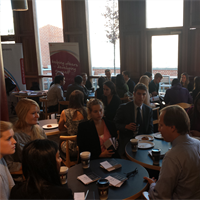
Law and legal services Information for LLM students

Law and legal services Providers of postgraduate courses in law

Law and legal services In-house law

See more articles
Please ensure all the details have been entered correctly in the twitter control..
- How to ace law firm competency interviews
- Chambers Student

Are you competent at competencies? We spoke to Dentons' grad recruitment team to get to grips with this popular method of assessing training contract hopefuls.
The reality
You've made the decision: you want to become a solicitor. Visions of slick attire, marbled interiors and on-site sushi chefs flood your mind; naturally, you start to look up how law firms recruit their future trainees. It's all going smoothly until a term comes into view, undefined but portentous: 'competency-based assessment.' And then it starts: that queasy feeling in the pit of your stomach. What is this competency malarkey all about? It sounds...well, a bit vague, a bit clinical, a bit intimidating.
Slow down. Put down the bottle of Kalms. Yes, the chances are law firms will assess competencies throughout the recruitment process, but there are ways to approach them that will keep you in the running for that coveted training contract. And who better to take us through this enduring recruitment technique than Dentons' very own Alex Mundy? As the firm's graduate recruitment manager, Mundy has interviewed an aspiring trainee or thousand in her time, so we'll use her insights to go through what the method involves: to take a closer look at five of Dentons' top competencies and to teach you how to showcase your talents successfully.
Before an organisation or business can test a candidate's competency, it has to decide what it wants to test. For this, it needs to turn its gaze to its star employees and analyse what it is that's made them so successful. As Mundy explains, at Dentons it's a case of “using competencies to ascertain what the common factors are among the lawyers at our firm.”
With a list of competencies drawn up, the next step is to hold it up against potential recruits. “Competencies are useful to us as the candidates we're interviewing don't have five years' experience working as a corporate lawyer,” says Mundy, “so instead we base our judgement on the elements that make a successful lawyer and whether our candidates have demonstrated those qualities and skills in the past.”
Despite “new methods entering the market” – which we'll touch upon later – Mundy believes that the competency-based approach will be with us for a while yet, as it's shown itself to be a reliable predictor of future behaviour. “But we're not just looking at the core competencies in isolation; we use them in combination with other assessments – like psychometric testing – to find out how committed candidates are to a career in law and whether they've done their research.”
“The best examples I've heard have come from part-time jobs in hospitality or retail – experiences that had nothing to do with connections or privilege.”
So far, so good, but given that this entire approach is based on experiences, does it matter what experiences a candidate has had? Not really, says Mundy, as “we acknowledge and celebrate that every candidate is unique and comes from different backgrounds with different experiences.” Examples can therefore come from “any sphere – from part-time jobs, academia, extra-curricular activities and work experience. The best examples I've heard have come from part-time jobs in hospitality or retail – experiences that had nothing to do with connections or privilege.”
So if your CV isn't brimming with fancy internships and gap-year epiphanies, don't worry, as transferable skills can be found in even the humblest of endeavours. But knowing how to show them off effectively is quite another matter, so let's hand over to Mundy to take a closer look at Dentons' top competencies.
Dentons' top competencies
1. Organisation and planning Method of assessment: “We assess this in the first round interview with HR, and also during the assessment day, where a role play exercise involves some organisation and planning.” The key takeaway: “We're looking for those who have the ability not just to manage their own workload, but those who can use available resources to assist and organise the people around them, especially if they are working in tandem with other teams.” This will score you points: “Showing that you've been able to manage a project from start to finish, balance competing priorities and meet the deadline. Often events planning is a really good way of demonstrating your ability to manage moving parts on a project that has a fixed deadline.” This won't go down so well: “Highlighting a team-based effort where it's clear that your role was very discrete and that you didn't have to do much of the organising.”
2. Attention to detail Method of assessment: “We'll analyse this through written, role play and case study exercises.” The key takeaway: “It's not just about being able to cross your T's and dot your I's.” This will score you points: “Describing a situation where you've been able to pick out a detail that has changed the whole scope of the situation or project you've been working on. We're seeking those who can identify the small details in a text or piece of communication and understand their significance in a broader context.” This won't go down so well: “With the above in mind, describing a situation where what you've identified is in fact very obvious. Also: claiming that you have exceptional attention to detail but turning in an application form that's littered with errors. It's a common mistake – people rush through things too much!”
3. Resilience Method of assessment: “We are looking at this in the first interview and during a case study. Each candidate will go through the case study with an assessor, but won't see it beforehand or have time to prepare their response; they will have to come up with answers on the spot.” The key takeaway: “With resilience it is about showing that you have got back up after experiencing setbacks. It's a bit of a mixed bag response-wise, because people's definition of resilience varies. This will score you points: “Giving an example where something unexpectedly went wrong and you only had a short time-frame to find a solution (and were successful in doing so!). For instance, you may have been working in a restaurant and the electricity cut out, so you had to write out the orders and take payment manually while keeping your customers happy. A good response I heard recently came from a candidate who'd climbed Mount Kilimanjaro. She really explained the setbacks she faced well; she thought she was fit enough to handle it, but suffered altitude sickness badly, hardly got any sleep and found it extremely tiring – but she did it despite the difficulty.” This won't go down so well: “Saying that finishing university in itself shows that you are resilient. Even if it was particularly hard it's about really being able to articulate why it was a challenge; you weren't used to having that schedule or timetable but you remained really committed. It's not about just stating what you've done, but really articulating the setbacks and how you managed to overcome them.”
“If a candidate doesn't have it then they don't have anything else. This is the one that really sets people apart…”
4. Enthusiasm Method of assessment: “We are gauging enthusiasm in the interview and throughout our vacation scheme – especially in the feedback we get on a candidate's performance during group exercises.” The key takeaway: “It is about going above and beyond to help people out and satisfy others' requests. It is possibly the most important competency we look at. If a candidate doesn't have it then they don't have anything else. This is the one that really sets people apart when it comes to deciding who will make a good trainee.” This will score you points: “During the vac scheme, for instance, it would impress us if a candidate really did not need to be involved in a project but through sheer interest or desire to help got involved in it. The ability to maintain the same level of commitment, even if a task is a bit dull, is highly valued.” This won't go down so well: “Highlighting an example in the interview where it is clear that the candidate was only helping out others for personal gain.”
5. Analytical ability Method of assessment: “We're assessing this one through a written exercise and a case study.” The key takeaway: “There are two sides to analytical ability: the first is breaking down problems into smaller pieces and the second is being able to form a judgement by combining the information contained in those pieces. That is fundamental to being a lawyer. It's one that is quite hard to demonstrate in an interview setting; it usually requires a practical exercise too. You can't really prepare for it. You are given a problem in the assessment setting, where you'll take some time to think it through and then discuss your conclusions.” This will score you points: “In an interview: describing your dissertation well. Don't worry if it seems obvious – it's the best example of pure analysis that most people have.” This won't go down so well: “The people who aren't successful in the case study exercise are those who don't go into enough detail when discussing their conclusions; they're merely finding and highlighting information – they're not analysing it. When you're a trainee who's been tasked with a due diligence exercise, we're relying on you to find and analyse details that may be small but have a significant effect on the transaction and its outcome; it links back to the attention to detail competency we discussed earlier.”
“It's about building up a bank of examples that exhibit those skills, so that you have them in mind during the assessments.”
The right approach
If faced with competency-based assessments, ask yourself: 'Which skills are likely to be sought after by this firm?' Then, as Mundy says, “it's about building up a bank of examples that exhibit those skills, so that you have them in mind during the assessments.”
In any business career you’ll encounter a lot of cheesy acronyms, but the 'STAR' method is a good framework to employ at interview. It stands for S ituation, T ask, A ctivity and R esult. When compiling your bank of examples, structure each one using the acronym:
S ituation: set the scene – what was happening?
T ask: what was expected of you in the situation?
A ctivity : what course of action did you decide to take?
R esult: what effect did your course of action have? Did it have the desired effect and how does it demonstrate a particular skill well?
You may well generate loads of examples, including some you feel are so dazzling they must be raised at some point in the interview. But hold your horses. The key to success in competency-based interviews is offering a carefully considered selection of experiences. “Only use examples that answer the question and don't try to shoehorn in something that doesn't fit,” Mundy advises. “It may well be an amazing situation that you're describing, but if it doesn't demonstrate the competency that we're looking for it will fall flat.”
“No experience can be too boring, but it can be irrelevant.”
The fear of sounding boring often prompts candidates to only highlight their flashiest experiences. From Mundy's perspective, “no experience can be too boring, but it can be irrelevant.” So banish the fear of being the candidate with the beige examples – if they do the job, they do the job. “You could highlight a really simple situation that showcases the competency in a concise way. Maybe you had a part-time job in a supermarket and were working under a lot of pressure the week before Christmas; people were fraught, and it required you to keep calm and deliver a high degree of client service.”
Whatever you do, don't lie – not even a teeny tiny white lie that just elevates the experience a bit and crams another handy skill in there. Your interviewer probably won't be able to know for definite that you've told a porky, but we all have in-built lie detectors that beep when something doesn't quite ring true. “You can usually tell, as the answer tends to be quite shallow and just doesn't feel authentic,” warns Mundy. So alongside relevance, authenticity reigns. “Those elements will make you stand out. We don't have an 'ideal' model for a candidate, but we want you to be authentic – we want to find out about you.”
Authenticity is certainly a must for any assessment days you attend. As Mundy points out, “candidates have to tread a fine line between making their opinion heard and listening to and considering the opinions of others. This is a challenge, but don't try to be someone you're not.” Knowing when to speak will showcase an overarching competency that's important to all firms: effective communication. “We assess this across all parts of the recruitment process,” Mundy confirms. “We're on the lookout for people who are self-aware when they communicate; those who can build a rapport and articulate their points well.” Of course, nerves can get in the way of communicating well: “We do take that into account, but it can really impact on a candidate's ability to sell themselves. My advice is that if you think you will be nervous look into what you can do to minimise and control your nerves in advance.”
You'll have to go beyond competencies in your prep. “They're just one element of the process,” stresses Mundy, highlighting that other assessment methods have entered into the fray. A popular one is strengths-based interviewing, “which is based around the idea that if you find something enjoyable you're likely to be good at it. It's a more forward-looking approach that examines a candidate's strengths and weaknesses via interests and motivations.”
Games-based assessment is also gaining traction. Taylor Wessing and Clifford Chance have already signed up to use it, and Dentons may follow suit in the future. In 25 minutes, Taylor Wessing's game, 'Cosmic Cadet,' assesses a range of aptitudes – like interpersonal skills and the ability to deliver results – as candidates progress through six levels. “It's an interesting method,” says Mundy, “which sets out to get a more accurate picture of a candidate by making them feel like they're not being assessed.” Depending on how much games-based assessments take off, we recommend dusting off your old PlayStation and reconnecting with your inner-gamer.
“We also need to see that they have the global mindset that the firm promotes.”
Outside of these nifty assessment techniques, you'll also have to consider your answers to the standard questions that all firms ask. Why law? Why this firm? Why are you passionate about business? Essentially: all the other elements of your story that should, if you tell it right, conclude with the alignment of your future with that of the firm's. Part of that will involve devoting some time to thinking about a firm's strategy and what you have to help them achieve it. While you won't have to demonstrate the canny flare of a senior partner, you will need to bring a suitable level of commercial awareness to the table. “We do expect candidates to understand the direction of the firm,” confirms Mundy, “where it fits in the marketplace and what it offers its clients in comparison to its competitors; we also need to see that they have the global mindset that the firm promotes.”
As with most things in life, the key is preparation, preparation, preparation. “The more prepared you are the more confident you will feel, so really do the legwork in advance,” recommends Mundy. However, bear in mind that “you can't cover absolutely everything, as some things have to come as a surprise in the recruitment process. But, if you've done the groundwork, you'll be in a more confident place to tackle those unexpected elements.”
Read our True Picture on Dentons to find out more about the firm. The firm is recruiting 46 trainees to start in 2022. The deadline to apply is 30 June 2020.
This feature was first published in March 2017.
- Law Firm Events
- Law Firm Deadlines
- Leaderboards
- Premium Database
- Premium Chat
- Commercial Awareness
- Future Trainee Advice
- Aspiring Lawyers - Applications & General Advice
- Applications Discussion
- Watson Glaser and Case Study Resources
Best ways to practice case study interviews
- Thread starter Kevin Toneatti
- Start date Oct 5, 2020
- Tags case study interview prep
Kevin Toneatti
- Oct 5, 2020
Hi everyone, last year I reached the HSF's assessment day. A part of their process is to conduct a case study interview that is aimed at putting you under lots of pressure by reading a substantial amount of information, as well as constantly challenge your points of view. Unfortunately, I did not get an offer for a VS, and according to the feedback report, the main reason was that I did not perform well in the case study interview. Can anyone tell me the best ways to practice a case study interview by myself? I find it quite difficult to put myself under pressure and challenge my own points of views. Thank you!
Founder, TCLA
Kevin Toneatti said: Hi everyone, last year I reached the HSF's assessment day. A part of their process is to conduct a case study interview that is aimed at putting you under lots of pressure by reading a substantial amount of information, as well as constantly challenge your points of view. Unfortunately, I did not get an offer for a VS, and according to the feedback report, the main reason was that I did not perform well in the case study interview. Can anyone tell me the best ways to practice a case study interview by myself? I find it quite difficult to put myself under pressure and challenge my own points of views. Thank you! Click to expand...
Legendary Member
- Oct 6, 2020
Hi @Alice G , thank you for the information, it is very helpful!
Similar threads
- Feb 13, 2024
- lawstudent18
- Mar 19, 2024
- Vacation Schemes Discussion
- May 23, 2024
- My Training Contract Journey
- Jul 5, 2023
- Introduce Yourself Here!
- summerlee780
- Sep 21, 2023
- General Discussion
- This site uses cookies to help personalise content, tailor your experience and to keep you logged in if you register. By continuing to use this site, you are consenting to our use of cookies. Accept Learn more…
Browse our recent articles in the press NEWS ⟶
[email protected] +852 2861 1511

Velocity | Case Study: Implementing New Technology for Leading Hong Kong Law Firm Hugill & Ip
- Hugill & Ip
- 3 June 2024
Established in 2018, Hugill & Ip has been providing bespoke legal advice and exceptional client services to individuals, families, and businesses in Hong Kong and internationally. The firm’s dedicated practice areas include dispute resolution, commercial litigation, employment and immigration issues, wealth management, and family disputes.
Founded on a strong commitment to differentiating themselves as “outside the box” thinkers and legal practitioners, Hugill & Ip has won numerous accolades for their outstanding work. The firm has been recognised multiple times by Asian Legal Business and was awarded by The Law Society of Hong Kong for their pro bono service to the community.
The firm has grown rapidly since its inception, from just 17 employees to over 50 employees.
Why law firms need managed IT services
Modern law firms benefit when fully managed IT services set up and maintain their IT infrastructure since it helps them streamline their operations and optimise costs. Fully managed IT services are also more cost-efficient compared to more expensive in-house models.
Moreover, with the increasing digitisation of legal processes and the sensitivity of client data, robust cybersecurity measures are essential. Managed IT services can counter any threats through continuous monitoring and threat detection.
Just as importantly, managed IT services offer scalability, ensuring that law firms can adapt their IT resources as their needs evolve without significant upfront investments
From the very beginning, Hong Kong-based law firm Hugill & Ip trusted Velocity to lay the foundation of their IT infrastructure and cybersecurity. By adopting a cloud-first approach and leveraging the most cutting-edge technologies and security approaches, Hugill & Ip was able to establish a secure and agaile modern workplace .
How Velocity laid a strong IT foundation for Hugill & Ip
According to James Dwyer, Velocity’s COO, Hugill & Ip presented Velocity with a unique opportunity to lead with modern technology. “The firm was a completely greenfield project. Hence, we didn’t have to worry about managing legacy systems or legacy platforms,” James said.
“We went into this with a strong cloud-first approach, which meant that we were able to leverage all of the latest technologies and security approaches when establishing the IT infrastructure for Hugill & Ip.”
Velocity made sure that all of Hugill & Ip’s systems-including its CRM, billing, and legal case management systems-were easily and securely accessible on the cloud. Moreover, Velocity’s commitment to implementing a cloud-first approach-coupled with a distributed networking environment and storage system-allowed the firm to seamlessly transition to remote work during the COVID-19 pandemic.
Migration to Egnyte
Velocity initially set up Microsoft 365 and SharePoint for emails, file sharing, and communication, but the firm quickly outgrew these services. Velocity then moved the firm to Egnyte– a cloud-based solution that gives organisations governance, security, compliance, and collaboration capabilities over its content.
Egnyte’s powerful and scalable file management system allows organisations to store, organise, and access files with ease. Just as importantly, solicitors and support staff can securely collaborate on legal cases both in-office and remotely.
Equipped with UniFi
Velocity also equipped Hugill & Ip’s three offices with UniFi- a highly scalable Wi-Fi platform that allows IT administrators to seamlessly manage hundreds of access points-all while establishing a centralised administration system.
Integration with Microsoft Teams
The Velocity team made a point of integrating Hugill & Ip’s telephone systems with Microsoft Teams. This type of integration wasn’t previously available in Hong Kong. “This integration was something we developed for Hugill & Ip internally,” James said. “There’s no precedent and I don’t know anybody else that is offering this service.”
This integration ensures that all employees have access to low-cost, IP-based international dialling, regardless of their location.
“We went into this with a strong cloud-first approach, which meant that we were able to leverage all of the latest technologies and security approaches when establishing the IT infrastructure for Hugill & Ip.” James Dwyer , COO at Velocity
The result: a more dynamic and efficient law firm
Velocity’s strong guidance helped Hugill & Ip incorporate the best legal technology into its internal processes. This resulted in a more dynamic and efficient organisation that is fully compliant with the rules set by The Law Society of Hong Kong.
“Having a strong IT partner has added immense value to our business, particularly helping us stay true and flexible, supporting our aspiration for being seen as modern, outside-the-box thinkers,” notes Marco Raccuia, Chief Operating Officer at Hugill & Ip. “Velocity has been pivotal to helping the firm differentiate itself by applying secure, yet scalable, IT infrastructure that ultimately helps us increase client satisfaction and deliver timely results.
“Velocity provided thoughtful planning in the beginning, helping us make the right IT investments. This, in turn, has positively impacted our firm’s efficiency and ability to provide effective legal counsel to our clients. Based on general feedback, our clients say they appreciate the quick turnaround in financial statements and billings, helping them settle their accounts more quickly.”
By taking full responsibility for Hugill & Ip’s technology needs, the firm was able to focus on growing its practice—transforming the firm into one of the top law firms in Hong Kong and earning it prominent positions in The Legal 500.
“From the very beginning, we set out daring to be different as a modern law firm. Having a strong IT partner has added immense value to our business. Velocity has been pivotal to our organisation’s digital transformation, helping us increase client satisfaction and deliver timely results.” Marco Raccuia , Chief Operating Officer at Hugill & Ip
Interested in learning more about Velocity’s bespoke, fully-managed IT services? Get in touch for free consultation .
The article was originally published on Velocity website
- Case Analysis

The Importance of Having LGBTQ Role Models in the Workplace
Privacy preferences.
When you visit our website, it may store information through your browser from specific services, usually in the form of cookies. Here you can change your Privacy preferences. It is worth noting that blocking some types of cookies may impact your experience on our website and the services we are able to offer.
New Study Links Hormone Disruptors to Earlier Puberty and Health Risks
Posted: June 2, 2024

A study published last week highlights a concerning trend: American girls are reaching puberty earlier than ever before, with significant long-term health risks. Over the past decades, the average age of puberty onset has decreased, leading to a range of potential health issues including mental health problems, increased risk of breast cancer, and fertility challenges later in life.
Research has consistently shown that the age at which girls reach puberty is declining most rapidly among racial minority groups , girls from lower socioeconomic backgrounds , and those with higher body mass indexes (BMIs), reported The New York Times .
Important Takeaways From the New Study
Key findings of the recent study include:
- Mental Health : Early puberty is linked to higher rates of depression, anxiety, and social isolation due to the physical and emotional changes occurring at a younger age.
- Physical Health : Early onset puberty is associated with a greater risk of breast cancer and other chronic health conditions like coronary heart disease.
- Environmental Factors : Contributing factors include childhood obesity, stress, improved nutrition, and exposure to endocrine-disrupting chemicals.
On May 31, 2024, PBS reported on this important study and its implications in an interview with Dr. Shruthi Mahalingaiah of the Harvard T.H. Chan School of Public Health .
Hormone Disruptors in Hair Relaxers
Chemical hair relaxers have substances called endocrine-disrupting chemicals. These chemicals can affect your endocrine system, which includes important glands like the thyroid, ovaries, pancreas, and adrenal glands. As a result, hormone levels change. Some of these harmful chemicals, like phthalates and parabens, are found in hair relaxers.
In 2023, several important studies have shown a link between chemical hair relaxers and higher rates of uterine cancer. These relaxers work by breaking down hair proteins to make hair straight. In October 2023, under pressure from Democratic Representatives Ayanna Pressley and Shontel Brown , the FDA proposed banning hair-smoothing products with formaldehyde , a known cancer-causing chemical.
A study from Boston University , published on October 10, 2023, found that postmenopausal Black women who used chemical hair relaxers more than twice a year or for over five years have a higher risk of uterine cancer. The Black Women’s Health Study (BWHS) followed 44,798 Black women for up to 22 years and discovered that postmenopausal women who used hair relaxers for at least 10 years had a higher rate of uterine cancer, regardless of how often they used them.
Hair Relaxer Lawsuit Update
As more research highlights the risks, many Black women have sued major beauty brands like L’Oreal and Revlon. They claim these products cause uterine cancer, fibroid tumors, and infertility.
The Judicial Panel on Multidistrict Litigation has combined all federal lawsuits related to chemical hair relaxers into a new class action MDL (IN RE: HAIR RELAXER MARKETING, SALES PRACTICES, AND PRODUCTS LIABILITY LITIGATION, MDL No. 3060). About 60 cases were moved to the Northern District of Illinois to be overseen by Judge Mary Rowland.
As of May 1, 2024, the JPML reported 8,468 hair relaxer lawsuits are pending in the MDL.
In early May 2024, a second wave of defendants was added to the chemical hair relaxers litigation, according to Levin Papantonio Rafferty (LPR) Attorney Chelsie Green , who serves on the Leadership Development Committee for the hair relaxer MDL.
Free Case Evalulation
Terms for submitting inquiry.
By clicking the "I agree" and "Submit for Free Evaluation" buttons, I agree to the POLICIES AND DISCLAIMERS , including arbitration provision therein, and consent to receive marketing emails, calls and/or texts, including those made using an automated system and/or artificial/prerecorded voice messages, from or on behalf of Levin Papantonio Rafferty regarding their services in response to my inquiry at the telephone number(s) provided above, even if currently listed on any state, federal or corporate Do Not Call registry. I understand my consent to receive automated marketing calls/texts is not required as a condition of purchasing any services. However, if I do not consent, then I must call the law firm directly at 800-277-1193 in order to obtain services. I can revoke my consent at any time.
- Skip to main content
- Keyboard shortcuts for audio player
Weekend Edition Sunday
- Latest Show
Sunday Puzzle
- Corrections
Listen to the lead story from this episode.
Politics chat: Democrats open campaign offices in purple states, Haley supports Trump
by Ayesha Rascoe , Tamara Keith
Nelson Mandela's party could lose their absolute majority in South Africa
by Emmanuel Akinwotu
Nelson Mandela's party is poised to lose their absolute majority in South Africa
How do teenage whales rebel in the strait of gibraltar, by sinking ships.
by Ayesha Rascoe
In the run-up to elections in the UK, people say they're ready for a change
by Willem Marx
The anatomical atlas used by doctors has a dark history. One man is pushing for change
'minnesota nice' has been replaced by a new, cheeky slogan for the state.
by Peter Cox
CDC report finds 1 in 9 American kids has been diagnosed with ADHD
by Maria Godoy , Ayesha Rascoe

Sunday Puzzle NPR hide caption
Sunday Puzzle: Name these iconic U.S. summer vacation destinations!
by Will Shortz
The original travel expert, Rick Steves, on how to avoid contributing to overtourism
Disney composer richard sherman dies at 95.
by Tim Greiving
What to know before the final week of Trump's hush money trial
by Ximena Bustillo
4 East Asian countries are holding a summit after 4 years. The U.S. will be watching
by Anthony Kuhn , Ayesha Rascoe
U-Mass Dartmouth graduates got a surprise gift from a billionaire at graduation
by Rachel Treisman
How contraception became a political issue among Christians in the U.S.
Environment, your future's in the trash can: how the plastic industry promoted waste to make money.
by Michael Copley
Rescue efforts are underway in Papua New Guinea after a massive landslide
Author interviews, r.o. kwon on her novel 'exhibit', desire and taboos, andre holland on playing huey p. newtown in new series 'the big cigar'.
Searching for a song you heard between stories? We've retired music buttons on these pages. Learn more here.

COMMENTS
Many commercial law firms require candidates to undertake a case study at the final interview stage. There is not one single format, so it is advisable to ask the recruitment team what you can expect. Below are some general points and tips which have been put together from feedback from students who have gone through the process and what we ...
A legal case study interview is an exercise which allows the firm to assess your potential skills as a lawyer. The case study format enables the firm to identify core skills areas that enable you to deal with clients, documentation, giving advice and making judgements. It can take the form of a written exercise, presentation, or discussion - sometimes a mixture.
See the most common and important interview questions a law firm will likely answer you in an interview and get sample answers to help you prepare.
Starting your legal career? Hear from practicing attorneys about the answers they want to hear to common law interview questions and ways to set yourself apart.
Interview case studies. This course talks you through 14 case studies based on actual commercial law interviews, including questions, answers and advice covering the role of law firms, pitching, written exercises, contract and legislation analysis, disputes, M&A, and more. Get started.
Litigating a legal case takes preparation and strong advocacy. Learn how to advocate for yourself with these sample law firm interview questions.
The interview: arguably the most daunting part of the whole application process and the one that will make or break your journey with that particular law firm. But with plenty of preparation you can go into your interview feeling confident and knowing that you're about to give your best performance.
Learn practical strategies to ace your law firm interview. Discover how to research the firm, prepare answers, and dress appropriately. Get tips on confidently navigating tough questions, asking thoughtful questions, and following up with a thank you note. Improve your chances of success with these strategies for mastering your law firm interview.
Preparation is key when it comes to law firm interviews. Here are five common interview questions and advice on how to respond to them.
Welcome to the Law Firms page! Here, you can find extra information about various law firms, as well as case studies and interviews with current solicitors and trainees.
Getting a job with a law firm can be difficult even in the best of times, thanks to the sheer volume of Lawyers in the country and an increasingly competitive jobs market. That's why it's so critical to know how to answer the most common law firm interview questions, to ensure that hiring managers can quickly identify you as a great candidate for their open position.
We've compiled 50 case interview examples and organized them by industry, function, and consulting firm to give you the best, free case interview practice. Use these case interview examples for practice as you prepare for your consulting interviews.
This week's Monday Article will cover how to approach law firm case studies, one of the most intimidating parts of the Assessment Centre (this was certainly the case for me!). We will first go over a mock case study scenario and then consider some points of technique for approaching the task when you're first handed the document pack. Thereafter, we will break down the example case study ...
6. Give an example of a time you used your ability to negotiate. In a law interview demonstrating your knowledge of the firm is all well and good, but you also need to show that you're qualified for the job. This is where strength and competency-based questions come in. These questions require you to give relevant examples of a time that you ...
Case interview examples and sample questions from the leading consulting firms, including McKinsey, BCG, Bain, Deloitte, PWC, Accenture, etc.
These case studies represent cases across firm styles (McKinsey, Bain, BCG, Deloitte, & more), including interviewer-led and interviewee-led (candidate-led) cases. The video examples demonstrate the nuances of the virtual case interview and include feedback from an MBB coach. The sessions feature consultants or consulting candidates.
This interview is by far the most common kind of assessment you will face at law firm assessment centres. Although they vary in time, length and structure, most candidates will have to answer competency and motivational interview questions.
Here is a list of 120+ common law firm application and interview questions, organised into the following categories: motivation questions, questions about your skills and experience, and commercial awareness questions.
Throughout the almost 15 years of running her practice, Managing Partner, Thien-Vu Hogan, has interviewed well over hundreds of candidates. Join her as she reveals the secrets of her hiring ...
Boost your confidence and refine your interview technique with remote Mock Interviews and Case Study Mock Interviews with a TCLA instructor.
Legal case studies and written exercises. As part of the recruitment process, in this kind of exercise you are given a set of papers relating to a particular situation and asked to make recommendations in a brief report. The firm will pick a case study relevant to the work they do. You are provided with a large amount of factual information.
Based on a real written exercise, this mock case study will help you prepare for your law firm assessment centres.
The student's guide to careers in the law. Gives the truth about law firms and the Bar. Based on thousands of interviews with trainees, pupils and market sources, this site offers the full package of careers advice to anyone entering the legal profession.
On-campus interviews (or OCIs) are when different law firms visit law schools across the country to conduct interviews with their chosen student-applicants. These interviews are part of a process for law students to get a possible summer internship, which may even lead to employment after graduation.
Paul Hastings offers a case study in the aggressive hiring of top performers, and observers say the push has worked out.
2. Look at the departments in law firms and understand what each of them does. This will allow you to go into the case study with a framework through which to think. If you remember about IP departments in law firms then your mind will trigger you to think about branding concerns or patents in a case study even if it is not explicit or obvious - this will show the interviewer you can think ...
By taking full responsibility for Hugill & Ip's technology needs, the firm was able to focus on growing its practice—transforming the firm into one of the top law firms in Hong Kong and earning it prominent positions in The Legal 500.
New Study Links Hormone Disruptors to Earlier Puberty and Health Risks. A study published last week highlights a concerning trend: American girls are reaching puberty earlier than ever before, with significant long-term health risks. Over the past decades, the average age of puberty onset has decreased, leading to a range of potential health ...
Hear the Weekend Edition Sunday program for May 26, 2024